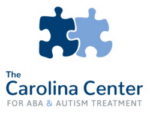Welcome Conference Attendees
Conference Agenda
Wednesday, February 22, 2023
8:30am
Conference Registration Opens (Benton Convention Center Main Entrance)
9:00am – 12:00pm
Pre-Conference Workshop I (Winston 3A)
Natalia Baires, PhD, BCBA-D (Southern Illinois University) Challenging Your Cultural Responsiveness: The Importance of Integrating Cultural Values within Ethical Behavioral Service Delivery
BACB Approved CE Available (Ethics) – NCPA Approved CE Available (Ethics)
Workshop Details

Natalia is a Clinical Assistant Professor and the Program Director for the online Behavior Analysis and Therapy programs at Southern Illinois University (SIU). She is an English-Spanish bilingual doctoral-level Board Certified Behavior Analyst (BCBA-D) who earned her B.A. in Psychology and Chicano/a Studies from California State University Northridge, completed her M.S. in Counseling/Applied Behavior Analysis from California State University Los Angeles, and earned her Ph.D. in Psychology/Behavior Analysis and Therapy from SIU. Her research interests include culturally adapted and culturally responsive approaches for culturally and linguistically diverse individuals, social justice, and equity within and outside the field, language and cognition informed by Relational Frame Theory, and Acceptance and Commitment Training to promote flexibility and well-being.
Abstract
According to the Behavior Analyst Certification Board (2020), Board Certified Behavior Analysts (BCBAs) have the ethical responsibility to broaden their knowledge and skillset related to cultural responsiveness and diversity. As humans and professionals, the cultural values of BCBAs and how they act in alignment with those values may differ from those of the clients they serve. When working with culturally and linguistically diverse populations, BCBAs may observe families and clients engage in behaviors that seem to interfere with behavioral services and address such behaviors without examining all variables, including the cultural context. This approach can not only impact treatment adherence, but, more importantly, social validity, rapport, and collaboration. Therefore, this presentation will provide attendees with an opportunity to challenge their level of cultural responsiveness by self-examining their cultural understanding of diverse populations and shifting their perspectives from conceptualizing given cultural values as perceived barriers to practices that can enhance behavioral service delivery. Recommendations in the areas of assessment, treatment design, and behavioral service delivery when working with diverse populations will also be discussed.
Objectives
On completion of this session participants should be able to:
- State the differences between cultural competency, cultural responsiveness, and cultural humility.
- Provide at least one way to identify and integrate a client’s/family’s cultural values (i.e., practices, contingencies) into behavioral service delivery.
- Identify at least one way to access and utilize tools for self-assessing one’s values, biases, and culture in delivering culturally responsive services.
References
- Antshel, K. M. (2002). Integrating culture as a means of improving treatment adherence in the Latino population. Psychology, Health & Medicine, 7(4), 435–449. https://doi.org/10.1080/1354850021000015258
- Baires, N. A., Catrone, R., & May, B. K. (2021). On the importance of listening and intercultural communication for actions against racism. Behavior Analysis in Practice, 15(4), 1042–1049. https://doi.org/10.1007/s40617-021-00629-w
- Beaulieu, L., & Jimenez‐Gomez, C. (2022). Cultural responsiveness in applied behavior analysis: Self‐assessment. Journal of Applied Behavior Analysis, 55(2), 337–356. https://doi.org/10.1002/jaba.907
- Bernal, G., Jiménez-Chafey, M. I., & Domenech Rodríguez, M. M. (2009). Cultural adaptation of treatments: A resource for considering culture in evidence-based practice. Professional Psychology: Research and Practice, 40(4), 361–368. https://doi.org/10.1037/a0016401
- Conners, B. M., & Capell, S. T. (2021). Multiculturalism and diversity in Applied Behavior Analysis Bridging Theory and Application. Routledge, Taylor & Francis Group.
Proposed Audience
Psychologists, Educators, Social Workers, Paraprofessionals, Behavior Analysis Practitioners, Students in a Behavior Analytic Field
Proposed Activities
Lecture, Discussion
Presentation Level
Intermediate
9:00am – 12:00pm
Pre-Conference Workshop II (Winston 3C)
Aaron Check, MA, BCBA & Katie Wolfe, PhD, BCBA-D (University of South Carolina) Being A Critical Consumer of ABA Literature
BACB Approved CE Available – NCPA Approved CE Available
Workshop Details
 Aaron received his B.S. in Child Psychology with a minor in Youth Studies from the University of Minnesota. After graduation he worked in a clinical setting in Minneapolis implementing Applied Behavior Analysis with children with Autism. He moved to South Carolina and continued to work in clinical, home, and school settings with children and adults with a variety of disabilities while completing a master’s degree and earning Board Certification. He is currently pursuing a PhD in Special Education from the University of South Carolina with a focus on applying the principles of behavior analysis within the process of transition.
Aaron received his B.S. in Child Psychology with a minor in Youth Studies from the University of Minnesota. After graduation he worked in a clinical setting in Minneapolis implementing Applied Behavior Analysis with children with Autism. He moved to South Carolina and continued to work in clinical, home, and school settings with children and adults with a variety of disabilities while completing a master’s degree and earning Board Certification. He is currently pursuing a PhD in Special Education from the University of South Carolina with a focus on applying the principles of behavior analysis within the process of transition.
 Katie is an Associate Professor of Special Education in the Department of Educational Studies at the University of South Carolina. She received her PhD in Disability Disciplines from Utah State University in 2013 and has held a variety of professional roles working with children and youth with autism and related disabilities and their families for almost 20 years. She conducts research on practitioner data-based decision making, and the variables that influence data analysis in single-case intervention research, and communication intervention for individuals with autism spectrum disorder.
Katie is an Associate Professor of Special Education in the Department of Educational Studies at the University of South Carolina. She received her PhD in Disability Disciplines from Utah State University in 2013 and has held a variety of professional roles working with children and youth with autism and related disabilities and their families for almost 20 years. She conducts research on practitioner data-based decision making, and the variables that influence data analysis in single-case intervention research, and communication intervention for individuals with autism spectrum disorder.
Abstract
A behavior analyst must continue professional development through mentorship, collaboration, continuing education, and keeping current with behavior-analytic literature. Keeping current with literature poses a challenge for any individual who has left academia, as accessing literature requires time, effort, and financial resources (Gillis & Carr, 2014). Yet, to engage in the evidence-based practice of applied behavior analysis, behavior analysts must remain current with literature (Slocum et al., 2014). The Behavior Analyst Certification Board (BACB) requires behavior analysts learn single-case research design (SCRD) as detailed in the task list (BACB, 2017), and use of research to inform practice is embedded in the ethics code (BACB, 2020). Publication, however, is not an assurance of quality. The behavior analyst must use their fundamental understanding of SCRD to evaluate quality, rigor, and applicability to their own context. The behavior analyst must evaluate universal elements which impact internal validity such as clear operational definitions, interobserver agreement, and treatment fidelity (Petursdottir & Carr, 2018), and elements that impact external and social validity such as participant descriptions, implementers, and treatment acceptability.
Objectives
On completion of this workshop participants should be able to:
- Identify at least three relevant strategies to keep in contact with single-case intervention research.
- Describe the three key features of single-case research design.
- Describe at least four indicators of strong internal validity in single-case research design.
- Describe at least three indicators of strong external validity in single-case research design.
References
- BCBA Task List (5th ed.) – BACB. (n.d.). Retrieved September 27, 2022, from https://www.bacb.com/wp-content/uploads/2020/08/BCBA-task-list-5th-ed-211019.pdf
- Ethics Code for Behavior Analysts. Behavior Analyst Certification Board. (2022, January 12). Retrieved September 27, 2022, from https://www.bacb.com/ethics-information/ethics-codes/
- Gillis, J. M., & Carr, J. E. (2014). Keeping current with the applied behavior-analytic literature in developmental disabilities: Noteworthy articles for the practicing behavior analyst. Behavior Analysis in Practice, 7(1), 10–14. https://doi.org/10.1007/s40617-014-0002-7
- Petursdottir, A. I., & Carr, J. E. (2018). Applying the taxonomy of validity threats from mainstream research design to single-case experiments in Applied Behavior Analysis. Behavior Analysis in Practice, 11(3), 228–240. https://doi.org/10.1007/s40617-018-00294-6
- Slocum, T. A., Detrich, R., Wilczynski, S. M., Spencer, T. D., Lewis, T., & Wolfe, K. (2014). The evidence-based practice of Applied Behavior Analysis. The Behavior Analyst, 37(1), 41–56. https://doi.org/10.1007/s40614-014-0005-2
Proposed Audience
Educators, Paraprofessionals, Students in a Behavior Analytic Field, Behavior Analysis Practitioners, Psychologists
Proposed Activities
Lecture, Practice with Scenarios, Discussion
Presentation Level
Intermediate
12:00pm – 1:30pm
Break Prior to Start of Main Conference Program
Poster Set Up
1:30pm – 2:00pm
Welcome to the Annual Conference
Welcome to the 34th Annual NCABA Conference Shanun Kunnavatana, PhD, BCBA-D, NCABA President, Easterseals UCP of NC and VA
2:00pm – 3:00pm
Invited Address 1 (Winston Ballroom)
Natalia Baires, PhD, BCBA-D (Southern Illinois University) Towards Ethical Clinical Practice: Considering the Intersection of Disability and Race Models in Applied Behavior Analysis
BACB Approved CE Available (Ethics) – NCPA Approved CE Available (Ethics)
Session Details

Natalia is a Clinical Assistant Professor and the Program Director for the online Behavior Analysis and Therapy programs at Southern Illinois University (SIU). She is an English-Spanish bilingual doctoral-level Board Certified Behavior Analyst (BCBA-D) who earned her B.A. in Psychology and Chicano/a Studies from California State University Northridge, completed her M.S. in Counseling/Applied Behavior Analysis from California State University Los Angeles, and earned her Ph.D. in Psychology/Behavior Analysis and Therapy from SIU. Her research interests include culturally adapted and culturally responsive approaches for culturally and linguistically diverse individuals, social justice, and equity within and outside the field, language and cognition informed by Relational Frame Theory, and Acceptance and Commitment Training to promote flexibility and well-being.
Abstract
With the United States becoming increasingly diverse and disability being prevalent among different races and ethnicities (Passel & Cohn, 2008; Vespa et al., 2020), behavior analysts have an ethical obligation to ensure their clinical practice is effective and responsive in disrupting the maintenance of oppressive practices, such as ableism and racism. To date, the behavior analytic literature has yet to highlight the overlap of disability and race as it relates to clinical practice. Therefore, this presentation will inform on different models of disability, including Disability Critical Race Theory, to examine the intersectional considerations of ableism and racism in behavior analytic practices. Actionable steps will be provided to challenge structural inequities and promote inclusive practices across organizations, service providers, research, and education. More importantly, recommendations will be highlighted to address some of the ableist practices in applied behavior analysis that have been expressed by individuals from historically oppressed communities based on race, ethnicity, and disability.
Objectives
On completion of this session participants should be able to:
- Describe at least three ways the tenets of Disability Critical Race Theory can be applied at the organizational level, provider level, and within research and education.
- Identify at least two ableist perceptions of autism spectrum disorders and related developmental disabilities.
- State at least two behaviors that challenge structural inequities and promote inclusive practices in applied behavior analysis.
References
- Annamma, S. A., Connor, D., & Ferri, B. (2013). DIS/Ability Critical Race Studies (DisCrit): Theorizing at the intersections of race and Dis/Ability. Race Ethnicity and Education, 16(1), 1–31. https://doi.org/10.1080/13613324.2012.730511
- Bunbury, S. (2019). Unconscious bias and the medical model: How the social model may hold the key to transformative thinking about disability discrimination. International Journal of Discrimination and the Law, 19(1), 26–47. https://doi.org/10.1177/1358229118820742
- Čolić, M., Araiba, S., Lovelace, T. S., & Dababnah, S. (2021). Black caregivers’ perspectives on racism in ASD services: Toward culturally responsive aba practice. Behavior Analysis in Practice, 15(4), 1032–1041. https://doi.org/10.1007/s40617-021-00577-5
- Dunn, D. S., & Andrews, E. E. (2015). Person-first and identity-first language: Developing psychologists’ cultural competence using disability language. American Psychologist, 70(3), 255–264. https://doi.org/10.1037/a0038636
- Levy, S., Siebold, A., Vaidya, J., Truchon, M.-M., Dettmering, J., & Mittelman, C. (2021). A look in the mirror: How the field of behavior analysis can become Anti-Racist. Behavior Analysis in Practice, 15(4), 1112–1125. https://doi.org/10.1007/s40617-021-00630-3
Proposed Audience
Psychologists, Behavior Analysis Practitioners, Educators, Students in a Behavior Analytic Field
Proposed Activities
Lecture, Discussion
Presentation Level
Intermediate
3:00pm – 3:15pm
Refreshment Break
Sponsored by BlueSprig Pediatric
3:15pm – 4:15PM
Invited Address 2 (Winston Ballroom)
Kristin M. Hustyi, MA, BCBA, LBA (LittleStar ABA) Promoting the Scientist-Practitioner Model through Applied Research and Dissemination
BACB Approved CE Available – NCPA Approved CE Available
Session Details
 Kristin completed her bachelor’s degree at Western Michigan University and her master’s at University of the Pacific. She has authored more than a dozen peer-reviewed articles and has presented research at conferences nationwide on topics ranging from the application of behavior analysis to health and fitness, to the behavioral and neuropathological underpinnings of severe problem behavior commonly shown by children diagnosed with autism, fragile X syndrome, and Prader-Willi syndrome. Prior to joining LittleStar, Kristin served as the National Director of Outcomes for Invo Healthcare. Kristin currently serves as Vice President of Research and Development for LittleStar ABA Therapy. She is an Adjunct Lecturer in the Stanford University School of Medicine Department of Psychiatry and Behavioral Sciences, and committee member of ABAI’s Health, Sport, and Fitness Special Interest Group.
Kristin completed her bachelor’s degree at Western Michigan University and her master’s at University of the Pacific. She has authored more than a dozen peer-reviewed articles and has presented research at conferences nationwide on topics ranging from the application of behavior analysis to health and fitness, to the behavioral and neuropathological underpinnings of severe problem behavior commonly shown by children diagnosed with autism, fragile X syndrome, and Prader-Willi syndrome. Prior to joining LittleStar, Kristin served as the National Director of Outcomes for Invo Healthcare. Kristin currently serves as Vice President of Research and Development for LittleStar ABA Therapy. She is an Adjunct Lecturer in the Stanford University School of Medicine Department of Psychiatry and Behavioral Sciences, and committee member of ABAI’s Health, Sport, and Fitness Special Interest Group.
Abstract
The scientist-practitioner model assumes that a separation of science and practice is artificial, arbitrary, and not in the best interest of the field of applied behavior analysis or those we serve (Weiss, 2018). Fostering a workplace culture that promotes the scientist-practitioner model by providing opportunities for practitioners to be consumers, evaluators, and creators of scientific evidence is likely to benefit patients, practitioners, organizations, and the field at large. Indeed, research conducted by Valentino and Juanico (2020) suggested that most practitioners view research as important and indicated that our practitioner workforce is eager to participate and contribute, but faces practical barriers related to time, mentorship, and opportunities to engage in research activities. In this presentation we review strategies and systems our organization has adopted to support practitioner interest in research and develop their clinical skills, including the establishment of (a) a research department and project teams, (b) collaborative relationships with academic institutions, and (c) a Research Review Committee to ensure that the rights and welfare of patients participating in research are adequately protected. Recommendations for building a program of research and dissemination within a human service setting will be discussed.
Objectives
On completion of this session the participants should be able to:
- Define the scientist-practitioner model.
- Identify three common barriers to and benefits of engaging in research activities in applied settings.
- Describe at least three organizational systems for promoting research and dissemination activities in a human service setting.
References
- Bailey, J. S., & Burch, M. R. (2002). Research methods in applied behavior analysis. Sage Publications, Inc. https://doi.org/10.4135/9781412985710
- Briggs, A. M., & Mitteer, D. R. (2021). Updated strategies for making regular contact with scholarly literature. Behavior Analysis in Practice, 15(2), 541–552. https://doi.org/10.1007/s40617-021-00590-8
- DiGennaro Reed, F. D., Pellegrino, A. J., Blackmann, A. L., Erath, T. G., Ruby, S. A., Harbison, M. J., & Maguire, H. (2022). Advancing OBM practice and research. In J. K. Luiselli, R. M. Gardner, F L. Bird, & H. Maguire (Eds.), Organizational Behavior Management Approaches for intellectual and developmental disabilities (pp. 15-24). Routledge. https://doi.org/10.4324/9780429324840
- LeBlanc, L. A., Nosik, M. R., & Petursdottir, A. (2018). Establishing consumer protections for research in human service agencies. Behavior Analysis in Practice, 11(4), 445–455. https://doi.org/10.1007/s40617-018-0206-3
- Luiselli, J. K., Gardner, R. M., Bird, F., Maguire, H., & Harper, J. M. (2022). Organizational Behavior Management in human services settings: Conducting and disseminating research that improves client outcomes, employee performance, and systems development. Journal of Organizational Behavior Management, 42(3), 255–273. https://doi.org/10.1080/01608061.2022.2027319
- Normand, M. P., & Donohue, H. E. (2022). Research ethics for behavior analysts in practice. Behavior Analysis in Practice. https://doi.org/10.1007/s40617-022-00698-5
- Parsons, M. B., & Reid, D. H. (2011). Reading groups: A practical means of enhancing professional knowledge among human service practitioners. Behavior Analysis in Practice, 4(2), 53–60. https://doi.org/10.1007/bf03391784
- Reid, D. H. (1992). The need to train more behavior analysts to be better applied researchers. Journal of Applied Behavior Analysis, 25(1), 97–99. https://doi.org/10.1901/jaba.1992.25-97
- Sidman, M. (2011). Can an understanding of basic research facilitate the effectiveness of practitioners? reflections and personal perspectives. Journal of Applied Behavior Analysis, 44(4), 973–991. https://doi.org/10.1901/jaba.2011.44-973
- Valentino, A. L. (2022). Applied behavior analysis research made easy: A handbook for practitioners conducting research post-certification. New Harbinger Publications.
- Valentino, A. L., & Juanico, J. F. (2020). Overcoming barriers to applied research: A Guide for Practitioners. Behavior Analysis in Practice, 13(4), 894–904. https://doi.org/10.1007/s40617-020-00479-y
- Weiss, M. J. (2018). The concept of the scientist practitioner and its extension to behavior analysis. Education and Treatment of Children, 41(3), 385–394. https://doi.org/10.1353/etc.2018.0021
Proposed Audience
Psychologists, Behavior Analysis Practitioners, Educators, Students in a Behavior Analytic Field
Proposed Activities
Lecture
Presentation Level
Basic
4:30pm – 5:30pm
NCABA Conference Student Symposium (Winston Ballroom)
NCABA Conference Student Symposium Chair: Elizabeth Thuman, BA, NCABA Student Representative, University of North Carolina Wilmington
BACB Approved CE Available
Session Details
Monique Pinczynski, BCBA, MEd (University of North Carolina Charlotte) Integrating STEM, Robotics, and Social Skills Instruction for Students with ASD/ID
 Monique is a first generation doctoral student at the University of North Carolina at Charlotte in Special Education. She was previously a classroom teacher in Henderson, NV where she taught students with autism and learning disabilities. Monique earned her B.S. and MEd. in Special Education at the University of Nevada Las Vegas, where she also attained her Board Certified Behavior Analyst certification. Her research interests include implementing evidence-based practices with students with autism and challenging behavior with a focus on communication as well as supporting teachers in this area.
Monique is a first generation doctoral student at the University of North Carolina at Charlotte in Special Education. She was previously a classroom teacher in Henderson, NV where she taught students with autism and learning disabilities. Monique earned her B.S. and MEd. in Special Education at the University of Nevada Las Vegas, where she also attained her Board Certified Behavior Analyst certification. Her research interests include implementing evidence-based practices with students with autism and challenging behavior with a focus on communication as well as supporting teachers in this area.
Abstract
In the U.S. and worldwide, STEM instruction is now considered a part of compulsory education and school curriculum (Passey, 2016). Robotics and computer programming/coding simultaneously incorporate all four areas of STEM while providing students with active learning and problem-solving experiences (Kalelioğlu, 2015). These experiences provide rich opportunities for students to use social skills while problem solving. However, individuals with ASD have deficits in communication/social skills that may require support during STEM instruction. Project Social Code, a five-year grant from the Department of Education brings researchers together from the University of Georgia State, Central Florida, and North Carolina to investigate integrating STEM and social skills instruction for students with autism and intellectual disability. Data will be shared from two pilot studies where teachers implemented a coding curriculum embedded with social skill instruction. Results of the first pilot study found increases in teacher fidelity and student social skills.
Thai Ray Williams, M.Ed., NBCT (University of North Carolina Charlotte) Everyone Gets to Write! Students with Intellectual and Developmental Disablities Write Sentences during Story-Based Lessons
 Thai Ray Williams is a doctoral student at the University of North Carolina- Charlotte and a National Board Certified Teacher with 31 years of experience as a special education teacher. Her research interests include: (a) writing instruction for students with extensive support needs, (b) family-centered and culturally-responsive practices for Native American families of children with disabilities, and (c) barriers to the use of evidence-based practices in classrooms for students with extensive support needs. In her spare time Thai enjoys working on her tiny house, creating multimedia art, and random adventures.
Thai Ray Williams is a doctoral student at the University of North Carolina- Charlotte and a National Board Certified Teacher with 31 years of experience as a special education teacher. Her research interests include: (a) writing instruction for students with extensive support needs, (b) family-centered and culturally-responsive practices for Native American families of children with disabilities, and (c) barriers to the use of evidence-based practices in classrooms for students with extensive support needs. In her spare time Thai enjoys working on her tiny house, creating multimedia art, and random adventures.
Abstract
Writing is used to express one’s knowledge and opinions, organize and plan, and engage in social exchanges. For many individuals, representative of diverse intersecting identities, it is means of expression and in some cases advocacy. Students with intellectual and developmental disabilities (IDD) have often been excluded from writing instruction due to low expectations and a lack of knowledge of how to teach writing to students with extensive support needs. This lack of writing instruction has resulted in a population that, in a digital age, has been denied access to what for many are primary modes of communication and social engagement because they are missing the foundational skills needed for such engagement. In this engaging session, the presenter will discuss a recent study conducted in a rural community on the effectiveness of time delay and sentence frames to teach students with IDD to generate sentences in response to text. Data indicated the intervention package was effective in teaching sentence construction of two sentence types with a large effect size per Tau-U. Additionally, the presenter will describe how this study extends the current literature and its implications for designing more effective literacy packages and increasing meaningful access to inclusive educational communities.
Trudy Georgio, BCBA, LBA (Texas A&M University) Teaching Autistic Children to Initiate Joint Attention: A Single-Case Research Study.
 Trudy is a Board Certified Behavior Analyst and doctoral candidate at Texas A&M University. Trudy has over 12 years of experience providing behavior support services in the home, school, clinic, and community settings. She is the founder of Tru Behavior Development, LLC, a consultation and training service grounded in the science of behavior. Trudy specializes in teaching language to students with autism spectrum disorders and mentoring students and practitioners of applied behavior analysis.
Trudy is a Board Certified Behavior Analyst and doctoral candidate at Texas A&M University. Trudy has over 12 years of experience providing behavior support services in the home, school, clinic, and community settings. She is the founder of Tru Behavior Development, LLC, a consultation and training service grounded in the science of behavior. Trudy specializes in teaching language to students with autism spectrum disorders and mentoring students and practitioners of applied behavior analysis.
Abstract
Joint attention (JA) is the ability to coordinate attention between a social partner and a referent in a social context. During JA episodes, children build social knowledge and perspective-taking. JA is a pre-linguistic skill critical for language acquisition and social and cognitive development. Research suggests that JA behaviors emerge in the first six months of life; the absence of these behaviors is one of the earliest indicators of autism spectrum disorder (ASD). Approximately a quarter of children with ASD do not develop functional language, an outcome believed to be rooted in deficiencies of JA. Derived from a verbal behavior account of language, a multiple probe design research study was conducted with three children with ASD. The intervention was designed to teach the participants to initiate triadic gaze through a differential reinforcement and time delay treatment package. Sessions were conducted during natural environment mand training, programming for generalization, and maintenance of behavior change. The study results were favorable, with all three participants doubling the percentage of initiation of JA overall. Social validity and participant assent behavior were measured and analyzed with positive results, demonstrating that this is a promising intervention for teaching this critical skill for learners with ASD.
7:00pm – 8:30pm
NCABA Poster Session (Winston 1 Foyer)
Click here for poster presentation list
Beer & Wine Sponsored by Action Behavior Centers (Cash Bar Also Available)
Thursday, February 23, 2023
8:00am
Conference Registration Opens (Benton Convention Center Main Entrance)
8:30am – 9:30am
Concurrent Session 1a (Winston 1A)
Tosha Owens, PhD, BCBA-D (East Carolina University) Educator Level of Preparedness in Supporting Students with Behavioral Challenges: Where Are We Now and Where Do We Need to Go?
BACB Approved CE Available
Session Details
 Tosha Owens, Ph.D., BCBA-D, is an assistant professor of Special Education at East Carolina University. She is also a Board Certified Behavior Analyst. Her research interests include increasing access to the general education setting for students with challenging behavior, culturally responsive behavioral support, reducing disproportionate discipline for minority students through positive behavioral interventions and support (PBIS), and integration of school-based mental health supports within a PBIS framework. She is the director of the Behavior Specialist Certificate, as well as the director of the ABA Clinic, an integral component of the Neurocognition Science Laboratory at ECU. She works closely with the Ministry of Education in the Czech Republic as a consultant on PBIS implementation and special education programming. Additionally, she leads a study abroad program where students engage in a hands-on experience in teaching and interacting with educational leaders within the Czech Republic. She is a graduate of UNC Charlotte, where she was a graduate assistant for The National Technical Assistance Center on Transition (NTACT).
Tosha Owens, Ph.D., BCBA-D, is an assistant professor of Special Education at East Carolina University. She is also a Board Certified Behavior Analyst. Her research interests include increasing access to the general education setting for students with challenging behavior, culturally responsive behavioral support, reducing disproportionate discipline for minority students through positive behavioral interventions and support (PBIS), and integration of school-based mental health supports within a PBIS framework. She is the director of the Behavior Specialist Certificate, as well as the director of the ABA Clinic, an integral component of the Neurocognition Science Laboratory at ECU. She works closely with the Ministry of Education in the Czech Republic as a consultant on PBIS implementation and special education programming. Additionally, she leads a study abroad program where students engage in a hands-on experience in teaching and interacting with educational leaders within the Czech Republic. She is a graduate of UNC Charlotte, where she was a graduate assistant for The National Technical Assistance Center on Transition (NTACT).
Abstract
Students with persistent behavioral challenges require to access to sound behavioral support from “bell to bell.” However, due to lack of educator training, this need is often unmet. Research has clearly demonstrated the importance of evidence-based practices for students with EBD across all settings (Gable et al., 2012). With the inadequacy of pre-service teacher training on supporting students with any sort of behavior challenge, a lack of resources including individuals with knowledge for consultation, and overall general education classroom hardships, it is not surprising that students with EBD and those with some of the highest level of behavioral needs would remain on an unchanged trajectory. In an effort to gain a better understanding of the preparedness and confidence of both general and special educators in regard to supporting students with behavioral challenges, a nationwide survey was conducted. Results of the survey will be discussed, as well as implications based on the results and suggestions for future research.
8:30am – 9:30am
Concurrent Session 1b (Winston 1 B/C)
Panel Discussion: Monique Baker, BCBA (chair); Jenn Godwin, BCBA, CHC, CPCO, Spencer Ramsey, BCBA, Albena Apostolova Rank, BCBA (Mosaic Pediatric Therapy) “It Really Is That Hard”: A Panel of Parents of Children With Autism or Other Developmental Disorders Who Happen to be BCBAs.
BACB Approved CE Available
Session Details
 Jenn Godwin is Board Certified Behavior Analyst and Certified Professional Compliance Officer. Jenn has worked in the field of Behavior Analysis in both public and private sectors for over 25 years receiving her initial training and mentorship under Dr. Vincent Carbone. Jenn’s areas of interest include staff training, development of procedures to support learners who need an alternative method of speaking and healthcare compliance. Jenn holds both an undergraduate and graduate degree in Special Education.
Jenn Godwin is Board Certified Behavior Analyst and Certified Professional Compliance Officer. Jenn has worked in the field of Behavior Analysis in both public and private sectors for over 25 years receiving her initial training and mentorship under Dr. Vincent Carbone. Jenn’s areas of interest include staff training, development of procedures to support learners who need an alternative method of speaking and healthcare compliance. Jenn holds both an undergraduate and graduate degree in Special Education.
 Spencer Ramsey was first introduced to Applied Behavior Analysis when her son was diagnosed with autism at the age of 3. After attending a workshop led by Dr. Vince Carbone BCBA-D and Dr. Pat McGreevy, BCBA-D, she was certain there was nothing more she wanted to do than help children with autism as a behavior analyst. To reach that goal. she completed the required coursework and mentorship leading to her certification as a BCaBA under Dr.Vince Carbone, BCBA-D. Spencer furthered her education by completing her M.Ed in Special Education from the University Michigan Dearborne, completed the BCBA coursework sequence through the Florida Institute of Technology and completed the mentorship leading to her BCBA in 2013 under Jenn Godwin, BCBA. In her free time, Spencer enjoys spending time with her family, going to the Theater with her husband, and spoiling her menagerie of pets.
Spencer Ramsey was first introduced to Applied Behavior Analysis when her son was diagnosed with autism at the age of 3. After attending a workshop led by Dr. Vince Carbone BCBA-D and Dr. Pat McGreevy, BCBA-D, she was certain there was nothing more she wanted to do than help children with autism as a behavior analyst. To reach that goal. she completed the required coursework and mentorship leading to her certification as a BCaBA under Dr.Vince Carbone, BCBA-D. Spencer furthered her education by completing her M.Ed in Special Education from the University Michigan Dearborne, completed the BCBA coursework sequence through the Florida Institute of Technology and completed the mentorship leading to her BCBA in 2013 under Jenn Godwin, BCBA. In her free time, Spencer enjoys spending time with her family, going to the Theater with her husband, and spoiling her menagerie of pets.
 Albena Apostolova Rank is a mother of three and a Board Certified Behavior Analyst (BCBA). Albena is currently focusing on supporting her 5 year-old son who has a diagnosis of Apraxia as well as Autism. She has recently obtained her Substitute Teacher credentials in addition to maintaining her BCBA licensure. Albena has always loved working with children and has done so in a variety of settings and circumstances: as an Au-pair, nanny, teacher assistant, behavior technician, BCBA, substitute teacher, and, most of all, as a mother. Albena was born in Sofia, Bulgaria, where she lived until 2005. She left Bulgaria to pursue education and experience in London, UK. There, she obtained her bachelor degree in Psychology with Neuroscience in 2010 from the University of Westminster. Shortly afterwards, Albena relocated to the USA to reunite with her now husband. After a few years of focusing on her new and growing family in San Diego, CA, Albena took a Behavior Technician job with an Applied Behavior Analysis (ABA) service provider and fell in love with the field. She completed her Master of Education (Curriculum and Instruction) degree at Arizona State University and has been practicing as a BCBA since June 2020, first in California, and then in North Carolina. In September 2022, Albena decided to take a break from clinical work and focus her time and energy on her own son, because It Really Is That Hard! Apart from her passion for ABA, Albena loves reading, cycling, board games, and spending time with her family and friends.
Albena Apostolova Rank is a mother of three and a Board Certified Behavior Analyst (BCBA). Albena is currently focusing on supporting her 5 year-old son who has a diagnosis of Apraxia as well as Autism. She has recently obtained her Substitute Teacher credentials in addition to maintaining her BCBA licensure. Albena has always loved working with children and has done so in a variety of settings and circumstances: as an Au-pair, nanny, teacher assistant, behavior technician, BCBA, substitute teacher, and, most of all, as a mother. Albena was born in Sofia, Bulgaria, where she lived until 2005. She left Bulgaria to pursue education and experience in London, UK. There, she obtained her bachelor degree in Psychology with Neuroscience in 2010 from the University of Westminster. Shortly afterwards, Albena relocated to the USA to reunite with her now husband. After a few years of focusing on her new and growing family in San Diego, CA, Albena took a Behavior Technician job with an Applied Behavior Analysis (ABA) service provider and fell in love with the field. She completed her Master of Education (Curriculum and Instruction) degree at Arizona State University and has been practicing as a BCBA since June 2020, first in California, and then in North Carolina. In September 2022, Albena decided to take a break from clinical work and focus her time and energy on her own son, because It Really Is That Hard! Apart from her passion for ABA, Albena loves reading, cycling, board games, and spending time with her family and friends.
 Chairperson: Monique Baker is a Board Certified Behavior Analyst who has been practicing behavior analysis in North Carolina for over fifteen years. She discovered her passion for working with children with autism her first year of college when she became a behavior technician for a young child with autism. She finished her undergraduate work, earning a B.S. in Early Childhood Special Education from Central Missouri University. Monique went on to earn her Master’s in Applied Behavior Analysis with an emphasis in Autism. Monique’s belief in creating high quality, individualized programs led her to help create a company that focuses on continuing education and rigorous ongoing training for providers. During the past few years Monique has worked alongside other behavior analysts in the state to ensure increased access to services and to support the creating of licensure for Behavior Analysts. Monique is currently serving in the role of Past President for NCABA and plans to continue her work of advocating for critical issues for behavior analysts and those who receive behavior analytic services.
Chairperson: Monique Baker is a Board Certified Behavior Analyst who has been practicing behavior analysis in North Carolina for over fifteen years. She discovered her passion for working with children with autism her first year of college when she became a behavior technician for a young child with autism. She finished her undergraduate work, earning a B.S. in Early Childhood Special Education from Central Missouri University. Monique went on to earn her Master’s in Applied Behavior Analysis with an emphasis in Autism. Monique’s belief in creating high quality, individualized programs led her to help create a company that focuses on continuing education and rigorous ongoing training for providers. During the past few years Monique has worked alongside other behavior analysts in the state to ensure increased access to services and to support the creating of licensure for Behavior Analysts. Monique is currently serving in the role of Past President for NCABA and plans to continue her work of advocating for critical issues for behavior analysts and those who receive behavior analytic services.
Abstract
For many parents of children with ASD or other developmental disorders, the carryover of interventions is necessary outside the constraints of a clinic, school or even in-home with a BCBA. Meaning, parents are often asked to implement change procedures outside of ABA sessions and research suggests that clinical outcomes are improved when caregivers implement interventions (Kasari et al., 2014; Rojas-Torres et al., 2020). However, not all parents are able to implement recommended interventions consistently or at all (Pickard et al., 2015). Thus, it is the BCBAs responsibility to understand the variables contributing to parental engagement as well as the competing demands parents manage in order to modify treatment to increase the likelihood of successful outcomes. This panel will explore the experiences of parents of children with autism or other developmental disorders who are also BCBAs in order to improve the audience’s understanding of the environment-behavior relations that may contribute to parental stressors and challenges. As the field strives for improved empathetic and compassionate care, it is critical that we learn from those that we serve and modify our own clinical behavior to meet their needs.
8:30am – 9:30am
Concurrent Session 1c (Winston 3C)
Casey Gregory, MT-BC, BCBA & Ryan Martin, PhD, BCBA (Mosaic Pediatric Therapy) Using BST to Train BST: A Case Study on Pyramidal Training for Improving DTT Fidelity
BACB Approved CE Available (Supervision)
Session Details
 Casey Gregory, MT-BC, BCBA has over 20 years of clinical experience serving populations in mental health, developmental disabilities, and autism, as well as 8 years of experience in clinical organizational management, including staff consultation, and training and development. In her current role as Director of Training and Compliance at Mosaic Pediatric Therapy, she developed and coordinates the student program, provides clinical support and consultation to BCBAs and Clinical Directors in multiple Mosaic clinics. She has presented applied research at national and state conferences with interests in effective teaching procedures, language development, OBM methods in applied settings, and staff training and Behavior Skills Training.
Casey Gregory, MT-BC, BCBA has over 20 years of clinical experience serving populations in mental health, developmental disabilities, and autism, as well as 8 years of experience in clinical organizational management, including staff consultation, and training and development. In her current role as Director of Training and Compliance at Mosaic Pediatric Therapy, she developed and coordinates the student program, provides clinical support and consultation to BCBAs and Clinical Directors in multiple Mosaic clinics. She has presented applied research at national and state conferences with interests in effective teaching procedures, language development, OBM methods in applied settings, and staff training and Behavior Skills Training.
 Ryan Martin, PhD, BCBA, is the Director of Research and Outcomes at Mosaic Pediatric Therapy. He is a licensed psychologist, nationally certified school psychologist, and a board-certified behavior analyst. Ryan’s primary responsibilities include conducting diagnostic evaluations, chairing Mosaic’s Research Review Committee, analyzing clinical data, and mentoring staff through the Mosaic Scholars program. He also serves on the editorial boards of the journals Behavior Analysis in Practice and Behavior and Social Issues. Ryan is passionate about using insights from applied research to help children and their families thrive.
Ryan Martin, PhD, BCBA, is the Director of Research and Outcomes at Mosaic Pediatric Therapy. He is a licensed psychologist, nationally certified school psychologist, and a board-certified behavior analyst. Ryan’s primary responsibilities include conducting diagnostic evaluations, chairing Mosaic’s Research Review Committee, analyzing clinical data, and mentoring staff through the Mosaic Scholars program. He also serves on the editorial boards of the journals Behavior Analysis in Practice and Behavior and Social Issues. Ryan is passionate about using insights from applied research to help children and their families thrive.
Abstract
Behavioral Skills Training (BST) is an evidence-based training method for teaching a variety of skills (Parsons, et al., 2013; Parsons, et al., 2014). BCBAs are expected to train support staff, but often do not use BST during supervision (Parsons et al., 2014). This study used a pyramidal approach using BST to train BCBAs on the use of BST during supervision of RBTs, specifically with discrete trial training (DTT) implementation with autistic children. Baseline data was collected both on RBT performance of pinpointed aspects of DTT and on the use of BST by BCBAs during supervision sessions across two centers. Using BST, training was provided in a group format to BCBAs on the use of BST during supervision. Post-training data was then collected in the same manner as baseline to analyze the effects of the pyramidal training. Preliminary results suggest that using BST to teach BCBAs how to use BST during supervision is an effective and efficient method to increase fidelity and consistency of staff implementation of teaching at both the BCBA level and the RBT level. Future research could benefit from replication of this study across other aspects of BCBA supervision to determine the generality of the BST pyramidal training approach.
8:30am – 9:30am
Concurrent Session 1d (Winston 3A)
Ashley Anderson, MEd, NBCT (University of North Carolina Charlotte) Teaching Conversation Skills to Young Adults in Community Settings
BACB Approved CE Available
Session Details
 Ashley Anderson is a doctoral student at the University of North Carolina at Charlotte. She has an M.Ed. in Special Education from UNC Charlotte and a Bachelor’s in Special Education from Western Carolina University. She has 10 years of experience in the classroom serving students with extensive support needs, as well as her National Board Certification for students with extensive support needs. Her research interests include supporting students with extensive support needs, early transition-based skill learning, and community-based instruction. In her spare time she serves as the local coordinator for Special Olympics Gaston County and participates in several professional organizations. She enjoys spending time with my family and friends, participating in sports and outdoor activities, baking, and crafting.
Ashley Anderson is a doctoral student at the University of North Carolina at Charlotte. She has an M.Ed. in Special Education from UNC Charlotte and a Bachelor’s in Special Education from Western Carolina University. She has 10 years of experience in the classroom serving students with extensive support needs, as well as her National Board Certification for students with extensive support needs. Her research interests include supporting students with extensive support needs, early transition-based skill learning, and community-based instruction. In her spare time she serves as the local coordinator for Special Olympics Gaston County and participates in several professional organizations. She enjoys spending time with my family and friends, participating in sports and outdoor activities, baking, and crafting.
Abstract
Young adults with autism spectrum disorder (ASD) typically benefit from individually-designed interventions to engage in reciprocal conversation. We used a multiple baseline across participants design to evaluate the effects of a technology-based self-monitoring application (i.e., I-Connect) and visual supports to teach question asking skills to three males with ASD, ages 21–26. Participants selected community locations to participate in structured conversations with peers that were audio recorded. All participants demonstrated an immediate effect to increase their number of questions asked when using I-Connect to self-monitor. However, participant responding varied when visual supports were added. Maintenance also varied across participants. Findings indicated existing evidence-based practices for learners with ASD, such as self-monitoring and visual supports, can be combined in socially valid ways. Implications and suggestions for future research related to teaching conversation skills for young adults with ASD are discussed. In this presentation attendees will have an opportunity to learn about the study, share with the results, and discuss implications for future research centered around teaching communication skills to young adults with ASD in the community setting.
8:30am – 9:30am
Concurrent Session 1e (Winston 3B)
Carol E. Williams, PhD, LPA, BCBA-D, Thomas Thompson, PhD, LP & Emily Hooker, MA, LPA, BCBA (Butterfly Effect, LLC) A Rapid Screening Tool for Identifying Comorbid Symptoms in Children and Adolescents with Autism Spectrum Disorder
BACB Approved CE Available
Session Details
 Dr. Williams is a psychologist currently working as the Director of Psychological and Behavioral Services with Butterfly Effects, LLC. She received a Doctorate in Applied Behavior Analysis from the Chicago School of Professional Psychology, a Master’s in Clinical Psychology from North Carolina Central University, and Board Certification in Behavior Analysis – Doctoral Level. During her studies, Dr. Williams published research involving relational frame theory with focus on using a behavior analytic approach to stem the flow of disinformation on social media and research related to structural inequality and stereotyping and the implications of stereotype threat. Dr. William’s has worked nearly 20 years, serving adults, adolescents, and children facing severe mental health and behavioral challenges, in inpatient, outpatient, and home settings. Since 2017, Dr. Williams has been a board member of the North Carolina Association of Professional Psychologists.
Dr. Williams is a psychologist currently working as the Director of Psychological and Behavioral Services with Butterfly Effects, LLC. She received a Doctorate in Applied Behavior Analysis from the Chicago School of Professional Psychology, a Master’s in Clinical Psychology from North Carolina Central University, and Board Certification in Behavior Analysis – Doctoral Level. During her studies, Dr. Williams published research involving relational frame theory with focus on using a behavior analytic approach to stem the flow of disinformation on social media and research related to structural inequality and stereotyping and the implications of stereotype threat. Dr. William’s has worked nearly 20 years, serving adults, adolescents, and children facing severe mental health and behavioral challenges, in inpatient, outpatient, and home settings. Since 2017, Dr. Williams has been a board member of the North Carolina Association of Professional Psychologists.
 Thomas J. Thompson, Ph.D. is a licensed psychologist specializing in Applied Behavior Analysis with more than 44 years of experience working with clients with intellectual disabilities and autism. He received his doctorate in Psychology from the University of Illinois-Chicago in 1988, and his Master’s in Psychology from Western Michigan University in 1979. Dr. Thompson retired as the Director of Psychology Services at the Murdoch Developmental Center in 2018. He is currently a clinician co-owner of BIP -Behavior Intervention Professionals in Hillsborough, NC, and a consultant with Butterfly Effects, LLC., a national leader in ASD treatment. He served 9 years on the North Carolina Psychology Board, the last three years as Chair. He is a past-president of NCABA and has given 24 presentations in 13 previous conferences.
Thomas J. Thompson, Ph.D. is a licensed psychologist specializing in Applied Behavior Analysis with more than 44 years of experience working with clients with intellectual disabilities and autism. He received his doctorate in Psychology from the University of Illinois-Chicago in 1988, and his Master’s in Psychology from Western Michigan University in 1979. Dr. Thompson retired as the Director of Psychology Services at the Murdoch Developmental Center in 2018. He is currently a clinician co-owner of BIP -Behavior Intervention Professionals in Hillsborough, NC, and a consultant with Butterfly Effects, LLC., a national leader in ASD treatment. He served 9 years on the North Carolina Psychology Board, the last three years as Chair. He is a past-president of NCABA and has given 24 presentations in 13 previous conferences.
 Emily Hooker has worked for Butterfly Effects, LLC for 3 years as a Clinical Director. Emily is a licensed psychological associate and behavior analyst who currently works to improve the lives of children and families affected by Autism Spectrum Disorder. Prior to this, Emily completed psychological evaluations and counselled both adults and children. Emily’s interests include working in early intervention, supervision, and trauma. Emily is a mom to an 8-year-old boy and is expected a little girl in July. She has three dogs and a cat at home and is planning a wedding for April 2024.
Emily Hooker has worked for Butterfly Effects, LLC for 3 years as a Clinical Director. Emily is a licensed psychological associate and behavior analyst who currently works to improve the lives of children and families affected by Autism Spectrum Disorder. Prior to this, Emily completed psychological evaluations and counselled both adults and children. Emily’s interests include working in early intervention, supervision, and trauma. Emily is a mom to an 8-year-old boy and is expected a little girl in July. She has three dogs and a cat at home and is planning a wedding for April 2024.
Abstract
Comorbid psychiatric disorders are observed in children and adolescents with autism spectrum disorder (ASD) at substantially higher rates than those found in typically developing peers. The most common comorbid psychiatric disorders are attention deficit hyperactivity disorder (ADHD) and anxiety (including general anxiety disorder, phobias, panic disorder, and post-traumatic stress disorder). Symptoms of these disorders could diminish the effectiveness of therapeutic treatment via applied behavior analysis (ABA), aimed at addressing the core symptoms of ASD. Identification of behavioral symptoms associated with comorbid psychiatric disorders for clients receiving treatment for ASD assists in differentiating matters related to scope of practice for BCBAs and aids clients/caregivers who may benefit from referrals to other providers as part of a multidisciplinary approach to treatment. Secondly, this research highlights the value of ABA treatment for behaviors associated with conventional psychiatric conditions, which could benefit clients as well as the field of behavior analysis. A rapid screening survey instrument was developed to administer at initial assessment to caregivers of clients with a diagnosis of ASD and at subsequent reviews to identify and track the presence of behaviors consistent with comorbid psychiatric symptoms. Results provide data on initial presentation and the progression of behavioral and/or psychiatric symptoms with ABA treatment and collaborative care as necessary.
9:30am – 9:45am
Refreshment Break
Sponsored by Northeastern University
9:45am – 10:45am
Concurrent Session 2a (Winston 3C)
Bradley Stevenson, PhD, BCBA-D, CDE & Aimee Combs (Melmark Carolinas) Behavior Analysis and Special Education: Facilitating Effective Interactions to Ensure All Children Receive a Free Appropriate Public Education
BACB Approved CE Available
Session Details
 Brad Stevenson is the Director of Program Administration and Clinical Services for Melmark Carolinas. He has been working in the field of special education supporting individuals with autism and other developmental disabilities since 2004. Since that time he has worked in numerous roles including direct supports, classroom teacher, BCBA overseeing insurance funded services, consultant, and as a clinical director. He obtained his BCBA in 2009. In 2017, he earned his Ph.D. in special education from the University of North Carolina Charlotte where his focus was comprehensive behavior planning for students with developmental disabilities who exhibit severe challenging behavior. He has presented at state and national conferences and published his research in special education and behavior analytic journals.
Brad Stevenson is the Director of Program Administration and Clinical Services for Melmark Carolinas. He has been working in the field of special education supporting individuals with autism and other developmental disabilities since 2004. Since that time he has worked in numerous roles including direct supports, classroom teacher, BCBA overseeing insurance funded services, consultant, and as a clinical director. He obtained his BCBA in 2009. In 2017, he earned his Ph.D. in special education from the University of North Carolina Charlotte where his focus was comprehensive behavior planning for students with developmental disabilities who exhibit severe challenging behavior. He has presented at state and national conferences and published his research in special education and behavior analytic journals.
 Aimee is the Assistant Director of Programs at the Exceptional Children’s Assistance Center (ECAC). ECAC serves as North Carolina’s Parent Training & Information Center which is funded by the U.S. Department of Education, Office of Special Education Programs. ECAC also serves as North Carolina’s Family to Family Health Information Center funded by the U.S. Department of Health and Human Services, Health Resources and Services Administration. Prior to working at ECAC, she was employed as the Parent Liaison at a sensory based pediatric occupational therapy clinic for 12 years, where her son with autism was also receiving a variety of therapies. Her son received early intervention services through the NC Infant Toddler Program, special education services from age 3 to 18 through the public schools and employment support through NC Vocational Rehabilitation. Aimee has a strong connection to families with children with special needs and finds great fulfillment in her work, whether she is connecting them with resources or providing them with information to help them make informed decisions for their child.
Aimee is the Assistant Director of Programs at the Exceptional Children’s Assistance Center (ECAC). ECAC serves as North Carolina’s Parent Training & Information Center which is funded by the U.S. Department of Education, Office of Special Education Programs. ECAC also serves as North Carolina’s Family to Family Health Information Center funded by the U.S. Department of Health and Human Services, Health Resources and Services Administration. Prior to working at ECAC, she was employed as the Parent Liaison at a sensory based pediatric occupational therapy clinic for 12 years, where her son with autism was also receiving a variety of therapies. Her son received early intervention services through the NC Infant Toddler Program, special education services from age 3 to 18 through the public schools and employment support through NC Vocational Rehabilitation. Aimee has a strong connection to families with children with special needs and finds great fulfillment in her work, whether she is connecting them with resources or providing them with information to help them make informed decisions for their child.
Abstract
There is considerable overlap between the field of behavior analysis and special education beginning with research all the way to service delivery. As a result, behavior analysts regularly interact with and support individuals accessing special education in a variety of ways (e.g., as a public school employee, under contract with public schools as a consultant, at the request of families). Serving in these roles effectively can be challenging without an understanding of the intricacies of special education policies and procedures. This presentation will provide information and tools for behavior analysts to more effectively collaborate with and advocate in the field of special education. It will do this by covering the following areas. First, an overview of the overlap between behavior analysis and special education will be provided, including a comparison of the domains of autism insurance mandates and special education. Second, relevant special education legal codes and policies will be reviewed to ensure an understanding of major requirements. Next, a description will be provided of how to write recommendations and goals for special education. Last, actionable steps to take to resolve disputes amongst education teams are described.
9:45am – 10:45am
Concurrent Session 2b (Winston 3B)
Ryan Martin, PhD, BCBA & Cynthia Anderson, PhD, BCBA-D (Mosaic Pediatric Therapy) Does Behavior Analysis Have the Tools to Find Its Heart? The Case for Qualitative Methods
BACB Approved CE Available
Session Details
 Ryan Martin is the Director of Research and Outcomes at Mosiac. He is a licensed psychologist, nationally certified school psychologist, and a Board Certified Behavior Analyst (BCBA). Ryan’s primary responsibilities include conducting diagnostic evaluations, chairing Mosaic’s Research Review Committee, analyzing clinical data, and mentoring staff through the Mosaic Scholars program. He also serves on the editorial boards of the journals Behavior Analysis in Practice and Behavior and Social Issues. Ryan is passionate about using insights from applied research to help children and their families thrive.
Ryan Martin is the Director of Research and Outcomes at Mosiac. He is a licensed psychologist, nationally certified school psychologist, and a Board Certified Behavior Analyst (BCBA). Ryan’s primary responsibilities include conducting diagnostic evaluations, chairing Mosaic’s Research Review Committee, analyzing clinical data, and mentoring staff through the Mosaic Scholars program. He also serves on the editorial boards of the journals Behavior Analysis in Practice and Behavior and Social Issues. Ryan is passionate about using insights from applied research to help children and their families thrive.
 Dr. Cynthia Anderson is a clinical psychologist with expertise in behavioral interventions and supports. She earned her PhD in Clinical Child Psychology from West Virginia University and held faculty appointments at West Virginia University, University of Oregon, and Appalachian State University. Currently, Dr. Anderson works at May Institute where she provides clinical leadership and oversees the May Institute Center for Applied Research. Her research interests span behavior analysis and psychology and focus on better understanding variables that affect the uptake and sustained use of interventions in community settings. Dr. Anderson’s research has been funded by the National Institutes of Health, the Department of Education, and the Department of Defense, as well as by several foundations.
Dr. Cynthia Anderson is a clinical psychologist with expertise in behavioral interventions and supports. She earned her PhD in Clinical Child Psychology from West Virginia University and held faculty appointments at West Virginia University, University of Oregon, and Appalachian State University. Currently, Dr. Anderson works at May Institute where she provides clinical leadership and oversees the May Institute Center for Applied Research. Her research interests span behavior analysis and psychology and focus on better understanding variables that affect the uptake and sustained use of interventions in community settings. Dr. Anderson’s research has been funded by the National Institutes of Health, the Department of Education, and the Department of Defense, as well as by several foundations.
Abstract
Wolf (1978) famously argued that behavior analysts should evaluate the social validity of the goals, procedures, and outcomes of behavior-analytic interventions. Unfortunately, assessment and reporting of social validity is omitted in most published behavior-analytic research, and when social validity is assessed, researchers often employ simple, non-validated questionnaires (Ferguson et al., 2018). Further, in recent years, autistic individuals and advocates have also expressed concerns regarding the acceptability of many behavior-analytic technologies (Dawson et al., 2021). It is therefore critical that behavior analysts redouble efforts to assess and promote social validity in their work. One promising way to promote social validity is the use of qualitative methods, which represent a class of methods for collecting and analyzing non-numeric narrative data, such as subjective experiences. We provide a brief primer on qualitative methods, including an overview of its philosophical underpinnings, common methods for collecting and analyzing data (e.g., thematic analysis; Clarke & Braun, 2017), quality indicators, and strategies for integrating qualitative methods within behavior analytic research and practice. We illustrate these concepts with qualitative data collected during a recent feasibility study of a behavioral parent training intervention.
9:45am – 10:45am
Concurrent Session 2c (Winston 1A)
Andrew Bonner, PhD, BCBA-D (Northeastern University) Evaluating Scalable Interventions to Reduce Greenhouse Gas Emissions from the Transportation Sector
BACB Approved CE Available
Session Details
 Dr. Bonner received his Ph.D. in Behavior Analysis from the University of Florida in 2022. He is currently an Assistant Clinical Professor at Northeastern University where he serves as the director of Northeastern’s Hybrid M.A. in Behavior Analysis in Charlotte, NC. Dr. Bonner also serves on the board of directors for Values to Action, a social justice nonprofit that uses behavior analysis to make the world more nurturing for young people. Dr. Bonner’s research interests focus on the development and evaluation of small- and large-scale interventions to reduce greenhouse gas emission. In addition, he is engaged in research that evaluates interventions to enhance literacy in under-resourced schools and that uses family and home-based interventions to improve social-emotional learning and reduce challenging behavior in neurotypical learners. Dr. Bonner also has extensive experience assessing and treating severe problem behavior emitted by people with developmental disabilities. He was the 2022 recipient of the Gerber Behavior Analysis Research Award at the University of Florida, and the 2020 recipient of the Behavior Change for a Sustainable World Research Award from the Florida Association for Behavior Analysis.
Dr. Bonner received his Ph.D. in Behavior Analysis from the University of Florida in 2022. He is currently an Assistant Clinical Professor at Northeastern University where he serves as the director of Northeastern’s Hybrid M.A. in Behavior Analysis in Charlotte, NC. Dr. Bonner also serves on the board of directors for Values to Action, a social justice nonprofit that uses behavior analysis to make the world more nurturing for young people. Dr. Bonner’s research interests focus on the development and evaluation of small- and large-scale interventions to reduce greenhouse gas emission. In addition, he is engaged in research that evaluates interventions to enhance literacy in under-resourced schools and that uses family and home-based interventions to improve social-emotional learning and reduce challenging behavior in neurotypical learners. Dr. Bonner also has extensive experience assessing and treating severe problem behavior emitted by people with developmental disabilities. He was the 2022 recipient of the Gerber Behavior Analysis Research Award at the University of Florida, and the 2020 recipient of the Behavior Change for a Sustainable World Research Award from the Florida Association for Behavior Analysis.
Abstract
Climate change represents an imminent threat to the survival of our species. In the U.S., the leading cause of emissions is from the transportation sector, which is responsible for 29% of national emissions. Strategies to stem emissions from this sector on large scales are badly needed. Prior research has shown that (a) value-based messaging can increase subjects’ self-reported motivation to engage in pro-environmental behavior, and (b) combining performance feedback with monetary incentives can reduce the number of miles travelled in gas-powered vehicles. However, whether value-based feedback (in isolation) modulates miles driven in gas-powered vehicles remains an open question. Moreover, no research has been dedicated to developing assessment tools to inform interventions for pro-environmental behavior. This talk describes a series of four experiments that focused on developing scalable interventions for reducing emissions from the transportation sector. Result showed that value-based feedback produced mileage reductions in most cases and that monetary incentives only periodically produced additive effects. Moreover, a new assessment tool (The Environmental Awareness, Responsibility, and Values Treatment Hierarchy) accurately predicted intervention effectiveness on several occasions. Implications for future research are discussed.
9:45am – 10:45am
Concurrent Session 2d (Winston 1B/C)
Jeannie A. Golden, PhD & Paula Flanders, MA (East Carolina University) Trauma-Based Responses to Challenging Behavior of Traumatized Youth: Changing Verbal Behavior of Staff
BACB Approved CE Available
Session Details
 Dr. Jeannie A. Golden is a Licensed Psychologist who received her Ph.D. in School Psychology from Florida State University in 1981. Dr. Golden has taught in the Psychology Department at East Carolina University for 39 years and became the first nationally Board Certified Behavior Analyst in North Carolina in 2000. Dr. Golden received ECU teaching awards in 2001 and 2009, the FABA Honorary Lifetime Membership Award in 1994, the NCABA Fred S. Keller Excellence in Behavior Analysis Award in 2005, the ECU Scholarship of Engagement Award in 2012, the NCABA Do Things Award for Outstanding and Sustained Contributions in 2013, the ECU Psychology Department Award for Distinguished Service in 2015, and the ECU Psychology Department Faculty Appreciation Award for Mentoring in 2017. Dr. Golden and colleagues received grants from Kate B. Reynolds Charitable Trust (2008-2011) and the Department of Health and Human Services (2011-2016) to provide school-based mental health services in two rural, impoverished counties in North Carolina. In March of 2018, Dr. Golden and colleagues were awarded the Creating New Economies Fund Grant by Resourceful Communities for the Greene County Community Advancement Project. Dr. Golden has been an invited speaker throughout the United States as well as internationally.
Dr. Jeannie A. Golden is a Licensed Psychologist who received her Ph.D. in School Psychology from Florida State University in 1981. Dr. Golden has taught in the Psychology Department at East Carolina University for 39 years and became the first nationally Board Certified Behavior Analyst in North Carolina in 2000. Dr. Golden received ECU teaching awards in 2001 and 2009, the FABA Honorary Lifetime Membership Award in 1994, the NCABA Fred S. Keller Excellence in Behavior Analysis Award in 2005, the ECU Scholarship of Engagement Award in 2012, the NCABA Do Things Award for Outstanding and Sustained Contributions in 2013, the ECU Psychology Department Award for Distinguished Service in 2015, and the ECU Psychology Department Faculty Appreciation Award for Mentoring in 2017. Dr. Golden and colleagues received grants from Kate B. Reynolds Charitable Trust (2008-2011) and the Department of Health and Human Services (2011-2016) to provide school-based mental health services in two rural, impoverished counties in North Carolina. In March of 2018, Dr. Golden and colleagues were awarded the Creating New Economies Fund Grant by Resourceful Communities for the Greene County Community Advancement Project. Dr. Golden has been an invited speaker throughout the United States as well as internationally.
 Paula Flanders
Paula Flanders
Abstract
The verbal behavior of staff toward youth can serve as motivating operations that can either encourage (establishing) or discourage (abolishing) aggressive, violent, oppositional, or defiant behavior. When strong emotional reactions and physiological responses are brought about by underlying trauma, techniques such as reflective listening, reframing, empathy, paradoxical intention, reinforcement, validating, and debriefing can serve as abolishing operations for these challenging behaviors. However, when staff are constantly the target of many of these behaviors, it is very difficult to respond using these strategies. Staff need both the skills and the motivation to respond to challenging behaviors in these in trauma-sensitive ways. Presenters will describe and demonstrate how to provide staff with the skills and motivation to use these techniques with traumatized youth. In our staff training program, staff were provided with two days (two-and-a- half hours each) of didactic information and then two days (two-and-a- half hours each) of modeling, role-play, and practice of the techniques that were taught. Pre and post role-play videos were used to evaluate this training program. Much was learned about how to effectively facilitate change in staff who are on the front lines dealing with youth who have experienced trauma and are exhibiting challenging behavior.
11:00am – 12:00pm
Concurrent Session 3a (Winston 3A)
Tosha Owens, PhD, BCBA-D & Holly Wickizer, MA, BCBA (East Carolina University) Teaching Children with High-functioning Autism to Self-advocate for Function-based Needs
BACB Approved CE Available
Session Details
 Tosha Owens, Ph.D., BCBA-D, is an assistant professor of Special Education at East Carolina University. She is also a Board Certified Behavior Analyst. Her research interests include increasing access to the general education setting for students with challenging behavior, culturally responsive behavioral support, reducing disproportionate discipline for minority students through positive behavioral interventions and support (PBIS), and integration of school-based mental health supports within a PBIS framework. She is the director of the Behavior Specialist Certificate, as well as the director of the ABA Clinic, an integral component of the Neurocognition Science Laboratory at ECU. She works closely with the Ministry of Education in the Czech Republic as a consultant on PBIS implementation and special education programming in country. She is a graduate of UNC Charlotte, where she was a graduate assistant for The National Technical Assistance Center on Transition (NTACT).
Tosha Owens, Ph.D., BCBA-D, is an assistant professor of Special Education at East Carolina University. She is also a Board Certified Behavior Analyst. Her research interests include increasing access to the general education setting for students with challenging behavior, culturally responsive behavioral support, reducing disproportionate discipline for minority students through positive behavioral interventions and support (PBIS), and integration of school-based mental health supports within a PBIS framework. She is the director of the Behavior Specialist Certificate, as well as the director of the ABA Clinic, an integral component of the Neurocognition Science Laboratory at ECU. She works closely with the Ministry of Education in the Czech Republic as a consultant on PBIS implementation and special education programming in country. She is a graduate of UNC Charlotte, where she was a graduate assistant for The National Technical Assistance Center on Transition (NTACT).
 Holly Wickizer has an undergraduate degree in Rehabilitation Services from East Carolina University and recently obtained her Master of Arts in ABA from Ball State University, as well as BCBA certification. Holly’s research interests include meaningful ways in which functional communication can be supported, specifically in classroom settings and through caregiver training. She also has a special interest in the prevalence of co-diagnosis of autism and seizure disorders.
Holly Wickizer has an undergraduate degree in Rehabilitation Services from East Carolina University and recently obtained her Master of Arts in ABA from Ball State University, as well as BCBA certification. Holly’s research interests include meaningful ways in which functional communication can be supported, specifically in classroom settings and through caregiver training. She also has a special interest in the prevalence of co-diagnosis of autism and seizure disorders.
Abstract
Self-advocacy has been identified as a predictor for positive post-school outcomes for students with disabilities (Newman et al., 2011). Children with ASD often have difficulty expressing self-advocacy due to social communication deficits and other mitigating factors (Kartovicky, 2020). Furthermore, children who exhibit behavioral challenges require consistently applied individualized support, such as Function-based Interventions (FBI), to make adequate progress toward goals (McIntosh et al., 2008). Although FBI has demonstrated effectiveness as a practitioner-implemented strategy, few studies have embedded self-advocacy skills enabling students to independently seek support based on their specific behavioral function and replacement behavior. Providing students with HF ASD with instruction on how to self-advocate their needs and request specific need-based support has the potential for improving self-advocacy skills and promoting educational access and community engagement. This presentation will review results, implications, and suggestions for future research related to the application of FBSA intervention with individuals with HF ASD.
11:00am – 12:00pm
Concurrent Session 3b (Winston 1B/C)
Callie Plattner, PhD, LPA, BCBA (Mosaic Pediatric Therapy) Feasibility and Effectiveness of Foundational Motivational Interviewing Training with Behavior Analysts
BACB Approved CE Available
Session Details
 Callie received her Master’s degree from Auburn University and her PhD from Endicott College in behavior analysis and has been practicing since 2008. She currently serves as the Vice-President of Clinical Operations for Mosaic Pediatric Therapy, a multi-state ABA provider in the Southeast. Callie has served on the North Carolina Association for Behavior Analysis (NCABA) board as Member at Large, Community Liaison and two time Past-President. She has also held a seat on the board of directors for the Association of Professional Behavior Analysts (APBA), served as a subject matter expert for the Behavior Analyst Certification Board (BACB) and the Council for Autism Service Providers (CASP). She has authored several book chapters and published in the Journal of Applied Behavior Analysis with her research focusing on parent engagement as well as training and supervision for early career BCBAs.
Callie received her Master’s degree from Auburn University and her PhD from Endicott College in behavior analysis and has been practicing since 2008. She currently serves as the Vice-President of Clinical Operations for Mosaic Pediatric Therapy, a multi-state ABA provider in the Southeast. Callie has served on the North Carolina Association for Behavior Analysis (NCABA) board as Member at Large, Community Liaison and two time Past-President. She has also held a seat on the board of directors for the Association of Professional Behavior Analysts (APBA), served as a subject matter expert for the Behavior Analyst Certification Board (BACB) and the Council for Autism Service Providers (CASP). She has authored several book chapters and published in the Journal of Applied Behavior Analysis with her research focusing on parent engagement as well as training and supervision for early career BCBAs.
Abstract
In the field of applied behavior analysis (ABA), there is a recognized need for Board Certified Behavior Analysts (BCBAs) to demonstrate improved empathy and communication skills when interacting with caregivers. In other helping professions, motivational interviewing (MI) is frequently used to enhance these therapeutic skills and improve clinical outcomes, yet this approach has not been evaluated in the field of applied behavior analysis. In this randomized control trial study, 51 behavior analysts were randomly assigned to either waitlist control or to receive the Brief Motivational Interviewing (BMI) training, which focused on situations which BCBAs often encounter when interacting with caregivers. Findings demonstrate that the brief virtual MI training results in statistically significant improvements in core MI skills including an increase in the use of open-ended questions, affirmations and reflections as well as improvements on a measure of MI knowledge. Measures of social validity confirm the feasibility, acceptability and usefulness of MI training for BCBAs and should be used to inform future modifications to graduate, practicum and ongoing continuing education. Overall, the curriculum fills the recent call for improvement from both parents and clinicians to address BCBA skill deficits with an approach that results in stronger therapeutic relationship building skills.
11:00am – 12:00pm
Concurrent Session 3c (Winston 3C)
Jill M. Harper Ph.D., BCBA-D, LABA, CDE (Melmark New England) Interdisciplinary Review Team (IRT): Training Effective Presentation Skills Across Professional Members
BACB Approved CE Available (Supervision)
Session Details
 Dr. Jill Harper is the Senior Director of Professional Development, Clinical Training, and Research at Melmark New England. Dr. Harper also holds an adjunct position with Endicott College and currently serves as the president of the Berkshire Association for Behavior Analysis and Therapy (BABAT). She received her Ph.D. in Psychology with a concentration in Behavior Analysis from the University of Florida in 2012. Her research interests include the assessment and treatment of severe behavior disorders, mechanisms responsible for behavior change, and staff training and supervision. Her work has been published in such journals as the Journal of Applied Behavior Analysis and the Journal of Developmental and Physical Disabilities. Dr. Harper regularly presents at regional and national conferences.
Dr. Jill Harper is the Senior Director of Professional Development, Clinical Training, and Research at Melmark New England. Dr. Harper also holds an adjunct position with Endicott College and currently serves as the president of the Berkshire Association for Behavior Analysis and Therapy (BABAT). She received her Ph.D. in Psychology with a concentration in Behavior Analysis from the University of Florida in 2012. Her research interests include the assessment and treatment of severe behavior disorders, mechanisms responsible for behavior change, and staff training and supervision. Her work has been published in such journals as the Journal of Applied Behavior Analysis and the Journal of Developmental and Physical Disabilities. Dr. Harper regularly presents at regional and national conferences.
Abstract
Behavior skills training (BST) has become a common method to establish professional competencies through instruction, modeling, rehearsal and feedback. This study examined the effects of BST on effective presentation skills of multiple professionals within an interdisciplinary review team (IRT) using a multiple baseline design. BCBA clinicians and registered nursing staff served as participants. All participants were active members of the IRT prior to the start of the study. During baseline, unique checklists were developed to assess the accuracy of presentation skills for each department. Supervisors of each department then implemented BST. During the instructional component, the rational for the IRT process was reviewed and a written description of the expectations around preparation and presentation was provided. Video models specific to preparation and presentation were viewed. Training ended with rehearsal during which participants were observed preparing for and presenting a case example. Feedback was provided throughout the training process. During baseline, moderate levels of accuracy were observed across all participants. Accuracy increased across all participants following BST. Participants and other members of the IRT completed social validity measures following the training. This study provides another example of the effectiveness of BST establishing professional competencies, in this case effective presentation skills.
12:00pm – 1:30pm
Lunch on Your Own
1:30pm – 2:30pm
Invited Address 3 (Winston Ballroom)
Panel Discussion: Selene Johnson (ABC of NC) & Thomas Thompson, PhD (BIP-Behavior Intervention Professionals of the Triangle, PLLC and Butterfly Effects, LLC) BCBA Licensure: A Review of Statutes and Update on Rules Regulating the Practice of Behavior Analysis in NC
BACB Approved CE – NCPA Approved CE
Session Details
 Selene Johnson, M.Ed., BCBA, is the Executive Director of ABC of NC, a specialized center in Winston Salem, NC, that provides therapeutic and educational services for autistic individuals and their families. She is a board certified behavior analyst (BCBA) and a formerly licensed special education teacher. Selene received her Master’s degree in Special Education from the University of North Carolina at Charlotte. She served on the governor-appointed Joint Study Committee on Autism Spectrum Disorder and Public Safety, studying autism health insurance legislation in NC, and led advocacy efforts towards behavior analyst licensure in North Carolina. Selene served on the board of the North Carolina Association for Behavior Analysis for eight years and is a past President of the organization. She formerly served on the NC Department of Public Instruction Council on Educational Services for Exceptional Children and the Association of Professional Behavior Analysts Board. She currently serves as Chair of the NC Behavior Analyst Licensure Board. She is a graduate of Leadership Winston Salem and of the Advancing Strong Leadership in Intellectual and Developmental Disabilities NC program.
Selene Johnson, M.Ed., BCBA, is the Executive Director of ABC of NC, a specialized center in Winston Salem, NC, that provides therapeutic and educational services for autistic individuals and their families. She is a board certified behavior analyst (BCBA) and a formerly licensed special education teacher. Selene received her Master’s degree in Special Education from the University of North Carolina at Charlotte. She served on the governor-appointed Joint Study Committee on Autism Spectrum Disorder and Public Safety, studying autism health insurance legislation in NC, and led advocacy efforts towards behavior analyst licensure in North Carolina. Selene served on the board of the North Carolina Association for Behavior Analysis for eight years and is a past President of the organization. She formerly served on the NC Department of Public Instruction Council on Educational Services for Exceptional Children and the Association of Professional Behavior Analysts Board. She currently serves as Chair of the NC Behavior Analyst Licensure Board. She is a graduate of Leadership Winston Salem and of the Advancing Strong Leadership in Intellectual and Developmental Disabilities NC program.
 Thomas J. Thompson, Ph.D. is a licensed psychologist specializing in Applied Behavior Analysis with more than 45 years of experience working with clients with intellectual disabilities and autism. He received his doctorate in Psychology from the University of Illinois-Chicago in 1988, and his Master’s in Psychology from Western Michigan University in 1979. Dr. Thompson retired as the Director of Psychology Services at the Murdoch Developmental Center in 2018. He is currently a clinician co-owner of BIP -Behavior Intervention Professionals in Hillsborough, NC, and a consultant with Butterfly Effects, LLC., a national leader in ASD treatment. He served 9 years on the North Carolina Psychology Board, the last three years as Chair. He is a past-president of NCABA and has given 24 presentations in 13 previous conferences.
Thomas J. Thompson, Ph.D. is a licensed psychologist specializing in Applied Behavior Analysis with more than 45 years of experience working with clients with intellectual disabilities and autism. He received his doctorate in Psychology from the University of Illinois-Chicago in 1988, and his Master’s in Psychology from Western Michigan University in 1979. Dr. Thompson retired as the Director of Psychology Services at the Murdoch Developmental Center in 2018. He is currently a clinician co-owner of BIP -Behavior Intervention Professionals in Hillsborough, NC, and a consultant with Butterfly Effects, LLC., a national leader in ASD treatment. He served 9 years on the North Carolina Psychology Board, the last three years as Chair. He is a past-president of NCABA and has given 24 presentations in 13 previous conferences.
Abstract
The passage of Senate Bill 103: An Act to Reduce Unnecessary Regulatory Constraints for Applied Behavior Analysis was a landmark accomplishment for the practice of behavior analysis in North Carolina, culminating a 10-year process that began when the first licensing bill was introduced in 2011. As the NC Behavior Analyst Licensure Board (NCBALB) begins to issue licenses, individuals practicing behavior analysis will be subject to the regulations, Code of Conduct, and rules contained in the Practice Act. Behavior Analysts should have a clear understanding of the contingencies these regulations impose upon their professional behavior. The former Chair of the NC Psychology Board and the current Chair of the Behavior Analyst Licensure Board will offer an informed review of the Behavior Analyst Licensure Act and prepare newly licensed Behavior Analysts for undertaking their responsibilities under this Act. They will discuss the quasi-judicial process that occurs when a person practicing behavior analysis becomes subject to Board action if a complaint is made against them.
Objectives
Upon completion of this session participants should be able to:
- Identify the difference between Certification and Licensure.
- State where to locate the Code of Conduct within the Behavior Analyst License Act and understand the 21 behavior categories that can be considered a violation of the Code.
- List the six sanctions that can be imposed because of violation of the Code of Conduct within the Behavior Analyst License Act.
- State the Behavior Analyst License Act rules status, or an overview of the rules if they have been approved by the State of NC at the time of the presentation.
- Describe the quasi-judicial process that occurs when a Board investigates a complaint, conducts a hearing, and imposes sanctions.
- State where to locate the current statute, rules, and regulations for the practice of Applied Behavior Analysis in NC.
References
- Senate Bill 103 / SL 2021-22 (2021-2022 session) – North Carolina General Assembly. ncleg.gov. (n.d.). Retrieved February 18, 2023, from https://www.ncleg.gov/BillLookUp/2021/SB%20103
Proposed Audience
Psychologists, Educators, Social Workers, Paraprofessionals, Behavior Analysis Practitioners, Students in a Behavior Analytic Field
Proposed Activities
Lecture
Presentation Level
Basic
2:45pm – 3:45pm
Invited Address 4 (Winston Ballroom)
Katie Wolfe, PhD, BCBA-D (University of South Carolina) Supporting Data-Based Decision Making in Early Career Practitioners
BACB Approved CE Available (Supervision) – NCPA Approved CE Available
Session Details
 Katie is an Associate Professor of Special Education in the Department of Educational Studies at the University of South Carolina. She received her PhD in Disability Disciplines from Utah State University in 2013 and has held a variety of professional roles working with children and youth with autism and related disabilities and their families for almost 20 years. She conducts research on practitioner data-based decision making, and the variables that influence data analysis in single-case intervention research, and communication intervention for individuals with autism spectrum disorder.
Katie is an Associate Professor of Special Education in the Department of Educational Studies at the University of South Carolina. She received her PhD in Disability Disciplines from Utah State University in 2013 and has held a variety of professional roles working with children and youth with autism and related disabilities and their families for almost 20 years. She conducts research on practitioner data-based decision making, and the variables that influence data analysis in single-case intervention research, and communication intervention for individuals with autism spectrum disorder.
Abstract
The selection and implementation of an empirically supported treatment that fits a client and context is the foundation of the evidence-based practice of applied behavior analysis (Slocum et al., 2014). However, behavior analysts are well aware that not all empirically supported treatments “work” for all clients and that ongoing data-based decision making is essential to maximizing effectiveness and efficiency. Data-based decision making is a complex repertoire of behaviors that involves analyzing and interpreting data and then selecting and implementing an appropriate decision based on that data, while considering factors related to the client, context, and intervention. Given the complexity of data-based decision making, it is essential that pre-service and early career practitioners receive high-quality support to develop this repertoire. This presentation will introduce several recently developed visual decision-making models that have been developed and evaluated to support early career practitioners in making sound data-based decisions (Kipfmiller et al., 2019; Wolfe et al., 2021; Wolfe et al., 2022) and discuss new avenues for future research in this area.
Objectives
Upon completion of this session participants should be able to:
- Describe at least three reasons for systematically training data-based decision-making repertoires in pre- and early-career behavior analysis professionals.
- Given a scenario and a graph, participants will use visual decision-making models to identify appropriate instructional decisions.
- Describe at least 2 gaps in the research literature related to training data-based decision making.
References
- Kipfmiller, K. J., Brodhead, M. T., Wolfe, K., LaLonde, K., Sipila, E. S., Bak, M. Y., & Fisher, M. H. (2019). Training front-line employees to conduct visual analysis using a clinical decision-making model. Journal of Behavioral Education, 28(3), 301–322. https://doi.org/10.1007/s10864-018-09318-1
- Slocum, T. A., Detrich, R., Wilczynski, S. M., Spencer, T. D., Lewis, T., & Wolfe, K. (2014). The evidence-based practice of Applied Behavior Analysis. The Behavior Analyst, 37(1), 41–56. https://doi.org/10.1007/s40614-014-0005-2
- Wolfe, K., McCammon, M. N., LeJeune, L. M., & Holt, A. K. (2021). Training preservice practitioners to make data-based instructional decisions. Journal of Behavioral Education. https://doi.org/10.1007/s10864-021-09439-0
- Wolfe, K., McCammon, M.N., & Check, A.R. (2022). Data-based decision making and progress monitoring. In L.C. Chezan, K. Wolfe, & E. Drasgow (Eds.), Guide to evidence-based practices for practitioners working with individuals with autism spectrum disorder. Roman & Littlefield.
Proposed Audience
Psychologists, Behavior Analysis Practitioners, Educators, Students in a Behavior Analytic Field
Proposed Activities
Lecture, Practice with Scenarios, Discussion
Presentation Level
Intermediate
3:45pm – 4:00pm
Refreshment Break
Sponsored by Blue Balloon ABA
4:00pm – 5:00pm
Invited Address 5 (Winston Ballroom)
Joseph M. Lambert, PhD, BCBA-D (Vanderbilt University) Economics of Extinction: Adding Nuance to Discussions of the Viability of Extinction as an Intervention
BACB Approved CE Available – NCPA Approved CE Available
Session Details

Joseph is an Assistant Professor in the Department of Special Education at Vanderbilt University. His areas of expertise include practitioner training, functional analysis, function-based interventions, and environmental factors that influence maintenance of treatment effects.
Abstract
Extinction bursts, or temporary increases in rates and intensities of behavior during extinction, often preclude the inclusion of extinction in intervention packages meant to suppress severe challenging behavior. Notwithstanding, extinction is often necessary to effectively address this class of behavior. The purpose of this talk is to present a line of inquiry which was explicitly developed to provide insight into how practitioners might enhance interventions for severe challenging behavior while also mitigating the undesirable collateral effects (i.e., extinction bursts) of therapeutic action (i.e., extinction). Behavioral economics and consumer-demand theory have proven highly useful to the conceptualization of this line and will be spotlighted to establish both the line’s theoretical precedent, as well as its framework for data interpretation.
Objectives
Upon completion of this session participants should be able to:
- Articulate at least two challenges to effective intervention presented by the potential occurrence of extinction bursts in applied settings.
- State how the accurate identification of environmental determinants of extinction bursts might be useful to treatment planning and design.
- Identify at least one reason to consider dynamic interactions between child- and caregiver-tendencies when considering the appropriateness of extinction as a treatment option.
References
- Falligant, J. M., & Hagopian, L. P. (2020). Further extensions of precision medicine to behavior analysis: A demonstration using functional communication training. Journal of Applied Behavior Analysis, 53(4), 1961–1981. https://doi.org/10.1002/jaba.739
- Fisher, W. W., Greer, B. D., Mitteer, D. R., & Fuhrman, A. M. (2022). Translating quantitative theories of behavior into improved clinical treatments for problem behavior. Behavioural Processes, 198, 104639. https://doi.org/10.1016/j.beproc.2022.104639
- Hagopian, L. P., Fisher, W. W., Sullivan, M. T., Acquisto, J., & LeBlanc, L. A. (1998). Effectiveness of functional communication training with and without extinction and punishment: A summary of 21 inpatient cases. Journal of Applied Behavior Analysis, 31(2), 211–235. https://doi.org/10.1901/jaba.1998.31-211
- Kunnavatana, S. S., Bloom, S. E., Samaha, A. L., Slocum, T. A., & Clay, C. J. (2018). Manipulating parameters of reinforcement to reduce problem behavior without extinction. Journal of Applied Behavior Analysis, 51(2), 283–302. https://doi.org/10.1002/jaba.443
- Lattal, K. A., Kuroda, T., & Cook, J. E. (2020). Early extinction effects following intermittent reinforcement: Little evidence of extinction bursts. Journal of the Experimental Analysis of Behavior, 114(1), 47–59. https://doi.org/10.1002/jeab.616
- Nist, A. N., & Shahan, T. A. (2021). The extinction burst: Impact of reinforcement time and level of analysis on measured prevalence. Journal of the Experimental Analysis of Behavior, 116(2), 131–148. https://doi.org/10.1002/jeab.714
- Rajaraman, A., Hanley, G. P., Gover, H. C., Staubitz, J. L., Staubitz, J. E., Simcoe, K. M., & Metras, R. (2021). Minimizing escalation by treating dangerous problem behavior within an enhanced choice model. Behavior Analysis in Practice, 15(1), 219–242. https://doi.org/10.1007/s40617-020-00548-2
Proposed Audience
Psychologists, Behavior Analysis Practitioners, Educators, Students in a Behavior Analytic Field, Social Workers, Paraprofessionals, Parents/Caregivers
Proposed Activities
Lecture
Presentation Level
Intermediate
5:15pm – 6:15pm
Annual Business Meeting (Winston Ballroom)
Election Results, Conference Planning, and More!
7:30pm – 11:00pm
Annual Social (Gallery Ballroom)
Beer & Wine, Heavy Hors d’oeuvres, and Music (Cash Bar Available)
Sponsored by Carolina Center for ABA and Autism Treatment (food); Mosaic Group, LLC (beverages); and A Bridge to Achievement (entertainment)
Friday, February 24, 2023
8:00am
Conference Registration Opens (Benton Convention Center Main Entrance)
8:30am – 9:30am
Invited Address 6 (Winston Ballroom)
Meredith Berry, PhD (University of Florida) Effects of Visual Exposure to Natural versus Built Environments on Delay Discounting and Behavioral Economic Drug Demand
BACB Approved CE Available – NCPA Approved CE Available
Session Details
 Meredith joined the Department of Health Education and Behavior and the Psychology Department at the University of Florida in 2018. Before joining the University of Florida, Dr. Berry completed her postdoctoral training in the Behavioral Pharmacology Research Unit at the Johns Hopkins University School of Medicine. She received her Ph.D. in Forest and Conservation Sciences at the University of Montana, her M.S. in Experimental Psychology from Utah State University, and her B.S. in Psychology from the University of Florida. As an experimental psychologist, she has several primary areas of research including 1.) basic processes of operant reinforcement, learning, memory, and behavioral economics often in the context of drug misuse and other health-related behaviors, 2.) the evaluation of misuse liability and behavioral and cognitive effects of various drugs, 3.) the intersection of human and environmental health, benefits of nature exposure, and environmental conservation. Closely related to her work on the intersection of human and environmental health, she is exploring novel applications of the benefits of nature exposure to issues of drug misuse. Her current focus on clinical drug misuse research stems from a foundation of preclinical and clinical training in behavioral pharmacology, and basic and translational behavioral research in decision-making and behavioral economics. Dr. Berry is the recipient of numerous NIDA/NIH grants and early career awards including the B.F. Skinner Foundation New Researcher Award in Basic Research. Her work is frequently covered in popular press news outlets including Scientific American, the Huffington Post, and NBC News. She is mentally preparing for climate wars, and in the meantime, enjoys spoiling her dogs and being in nature.
Meredith joined the Department of Health Education and Behavior and the Psychology Department at the University of Florida in 2018. Before joining the University of Florida, Dr. Berry completed her postdoctoral training in the Behavioral Pharmacology Research Unit at the Johns Hopkins University School of Medicine. She received her Ph.D. in Forest and Conservation Sciences at the University of Montana, her M.S. in Experimental Psychology from Utah State University, and her B.S. in Psychology from the University of Florida. As an experimental psychologist, she has several primary areas of research including 1.) basic processes of operant reinforcement, learning, memory, and behavioral economics often in the context of drug misuse and other health-related behaviors, 2.) the evaluation of misuse liability and behavioral and cognitive effects of various drugs, 3.) the intersection of human and environmental health, benefits of nature exposure, and environmental conservation. Closely related to her work on the intersection of human and environmental health, she is exploring novel applications of the benefits of nature exposure to issues of drug misuse. Her current focus on clinical drug misuse research stems from a foundation of preclinical and clinical training in behavioral pharmacology, and basic and translational behavioral research in decision-making and behavioral economics. Dr. Berry is the recipient of numerous NIDA/NIH grants and early career awards including the B.F. Skinner Foundation New Researcher Award in Basic Research. Her work is frequently covered in popular press news outlets including Scientific American, the Huffington Post, and NBC News. She is mentally preparing for climate wars, and in the meantime, enjoys spoiling her dogs and being in nature.
Abstract
The benefits of visual exposure to natural environments for human well-being in areas of stress reduction, mood improvement, and attention restoration are well documented. Recent evidence suggests that visual exposure to natural (e.g., trees, vegetation) rather than built (e.g., cities, buildings) environments can also influence decision-making and behavior. The present series of experiments evaluated differences in behavioral economic decision-making tasks in humans experiencing visual exposure to one of the following conditions: natural images (e.g., mountains, forests), or built images (e.g., buildings, cities). Following visual exposure to either natural or built images, participants completed a delay discounting task (Experiments 1, 2 & 3) and a behavioral economic purchase task for hypothetical substances (Experiments 3 & 4). In general, participants discounted delayed outcomes less (i.e., were less “impulsive”) and consumed less of their preferred substance (e.g., less hypothetical alcohol) after viewing natural compared to the built environments. Results suggest that exposure to natural relative to built environments results in decreased “impulsive” decision-making and reduced drug consumption. These data suggest that exposure to natural as opposed to built/city spaces may be beneficial for human decision-making processes, and also hold implications for environmental conservation and city planning and design.
Objectives
Upon completion of this session participants should be able to:
- Identify at least two behavioral processes that are affected by visual exposure to natural versus built environments.
- Describe research-based, behavior analytic and behavioral economic data resulting from visual exposure to natural compared to built environments.
- State three critical implications of this research for human and environmental health
References
- Berry, M. S., Sweeney, M. M., Morath, J., Odum, A. L., & Jordan, K. E. (2014). The nature of impulsivity: Visual exposure to natural environments decreases impulsive decision-making in a delay discounting task. PLoS ONE, 9(5). https://doi.org/10.1371/journal.pone.0097915
- Berry, M. S., Repke, M. A., Nickerson, N. P., Conway, L. G., Odum, A. L., & Jordan, K. E. (2015). Making time for nature: Visual exposure to natural environments lengthens subjective time perception and reduces impulsivity. PLOS ONE, 10(11). https://doi.org/10.1371/journal.pone.0141030
- Repke, M. A., Berry, M. S., Conway, L. G., Metcalf, A., Hensen, R. M., & Phelan, C. (2018). How does nature exposure make people healthier?: Evidence for the role of impulsivity and expanded space perception. PLOS ONE, 13(8). https://doi.org/10.1371/journal.pone.0202246
- Berry, M., Nickerson, N., & Odum, A. (2017). Delay discounting as an index of sustainable behavior: Devaluation of future air quality and implications for public health. International Journal of Environmental Research and Public Health, 14(9), 997. https://doi.org/10.3390/ijerph14090997
- Berry, M. S., Friedel, J. E., DeHart, W. B., Mahamane, S., Jordan, K. E., & Odum, A. L. (2017). The value of clean air: Comparing discounting of delayed air quality and money across magnitudes. The Psychological Record, 67(2), 137–148. https://doi.org/10.1007/s40732-017-0233-4
- Berry, M. S., Rung, J. M., Crawford, M. C., Yurasek, A. M., Ferreiro, A. V., & Almog, S. (2021). Using greenspace and nature exposure as an adjunctive treatment for opioid and substance use disorders: Preliminary evidence and potential mechanisms. Behavioural Processes, 186, 104344. https://doi.org/10.1016/j.beproc.2021.104344
Proposed Audience
Psychologists, Behavior Analysis Practitioners, Educators, Students in a Behavior Analytic Field
Proposed Activities
Lecture, Discussion
Presentation Level
Basic
9:30am – 9:45am
Refreshment Break
Sponsored by University of North Carolina Charlotte
9:45am – 10:45am
Invited Address 7 (Winston Ballroom)
Carolynn S. Kohn, PhD, BCBA-D (University of the Pacific) Motivational Interviewing – Some Whats, Whys, and Hows for Behavior Analysts
BACB Approved CE Available – NCPA Approved CE Available
Session Details

Carolynn is a tenured Professor in the Department of Psychology at the University of the Pacific (Stockton, CA), a licensed clinical psychologist, and a Board Certified Behavior Analyst® (BCBA-D). She is currently serving on the editorial board for Behavior Analysis: Research and Practice. Her research interests include the application of single case design and repeated measures methodology to areas of importance to behavioral psychology which are typically examined with group designs and aggregate data, including self-report, alcohol consumption, infant behavior, and most recently, ethical decision-making models.
Abstract
Clinical psychologists, social workers, licensed therapists, and others in the helping professions have made extensive use of a strategy called Motivational Interviewing (MI). MI can be conceptualized as a specific way of interacting with a client that is often used to increase their motivation to access and remain in treatment. Recently, some behavior analysts have started using this strategy in their research and MI workshops have been offered to behavior analysts discussing methods for incorporating MI strategies into their practice. However, behavior analysts rarely receive the requisite training to use these types of strategies that other types professionals receive prior to becoming licensed. The purpose of this current talk is to (1) introduce the audience to the basic components of MI, (2) discuss behavioral principles that are compatible with MI strategies and that help us understand why and how MI might be effectively used, and (3) identify settings, populations, and conditions, with examples, under which MI might be ethically and effectively used by behavior analysts.
Objectives
Upon completion of this session participants should be able to:
- Describe the basic components of Motivational Interviewing (MI).
- Identify at least two behavioral principles compatible with MI strategies and which help us understand the mechanisms by which MI might be effective.
- Identify at least one setting, population, and condition under which MI might be ethically and effectively used.
References
- Chadwell, M. R., Sikorski, J. D., Roberts, H., & Allen, K. D. (2019). Process versus content in delivering ABA services: Does process matter when you have content that works? Behavior Analysis: Research and Practice, 19(1), 14–22. https://doi.org/10.1037/bar0000143
- Christopher, P. J., & Dougher, M. J. (2009). A behavior-analytic account of motivational interviewing. The Behavior Analyst, 32(1), 149–161. https://doi.org/10.1007/bf03392180Miller, W. R., & Moyers, T. B. (2006). Eight stages in learning motivational interviewing. Journal of Teaching in the Addictions, 5(1), 3–17. https://doi.org/10.1300/j188v05n01_02
- Miller, W. R., & Rollnick, S. (2013). Motivational interviewing: Helping people change. The Guilford Press.
- Raiff, B. R., Barrry, V. B., Ridenour, T. A., & Jitnarin, N. (2016). Internet-based incentives increase blood glucose testing with a non-adherent, diverse sample of teens with type 1 diabetes mellitus: A randomized controlled trial. Translational Behavioral Medicine, 6(2), 179–188. https://doi.org/10.1007/s13142-016-0397-5
Proposed Audience
Psychologists, Behavior Analysis Practitioners, Students in a Behavior Analytic Field
Proposed Activities
Lecture
Presentation Level
Basic
11:00am – 12:00pm
Invited Address 8 (Winston Ballroom)
Tom Cariveau, PhD, LP, BCBA-D (University of North Carolina Wilmington) Skill Acquisition Programming and Stimulus Control Technologies: A Non-Linear Research Program
BACB Approved CE Available – NCPA Approved CE Available
Session Details

Tom is an Associate Professor in the Department of Psychology at the University of North Carolina Wilmington. Dr. Cariveau has advanced degrees in special education and school psychology from the University of Oregon and completed postdoctoral training at the Marcus Autism Center and Emory University. He is a Board Certified Behavior Analyst at the doctoral level, Licensed Psychologist in North Carolina, and serves on the editorial boards of the Journal of Applied Behavior Analysis, The Analysis of Verbal Behavior, and Journal of Behavioral Education. Like most behavior analysts, Dr. Cariveau dabbles in several different areas of research; although his primary interests are on methods to produce efficient and errorless transfer of stimulus control for early learners with a more recent focus on stimulus control topography coherence in early reading.
Abstract
Behavior analysts tasked with developing skill acquisition programs may be most effective when they are able to identify instances in which what was learned and what was intended to be taught are incongruent. Pervasive error patterns serve as one example of a performance suggestive of this incongruence; however, other performances may also indicate control by unintended conditions. This presentation will discuss recent work from our lab focused on methods to identify conditions that affect a learner’s performance and methods to remediate or even capitalize on those sources of control. We will also describe relevant research on methods aimed at promoting the efficiency of instructional programs including those that may produce more rapid acquisition or result in a greater amount of learning. Underlying each of these research areas is an emphasis on methods designed to meet the unique needs of each learner and a devoted attempt to incorporate the findings of the basic laboratory into our applied work.
Objectives
Upon completion of this session participants will be able to:
- Describe one potential role that stimulus blocking may play in challenges to transfer stimulus control.
- Contrast effectiveness and efficiency as dependent measures in skill acquisition programs.
- Contrast stimulus overshadowing and blocking and describe their relevance to applied practice.
References
- Dittlinger, L. H., & Lerman, D. C. (2011). Further analysis of picture interference when teaching word recognition to children with autism. Journal of Applied Behavior Analysis, 44(2), 341–349. https://doi.org/10.1901/jaba.2011.44-341
- Kodak, T., Campbell, V., Bergmann, S., LeBlanc, B., Kurtz-Nelson, E., Cariveau, T., Haq, S., Zemantic, P., & Mahon, J. (2016). Examination of efficacious, efficient, and socially valid error-correction procedures to teach sight words and prepositions to children with autism spectrum disorder. Journal of Applied Behavior Analysis, 49(3), 532–547. https://doi.org/10.1002/jaba.310
- Kodak, T., & Halbur, M. (2021). A tutorial for the design and use of assessment-based instruction in practice. Behavior Analysis in Practice, 14(1), 166–180. https://doi.org/10.1007/s40617-020-00497-w
- Schuster, J. W., Griffen, A. K., & Wolery, M. (1992). Comparison of simultaneous prompting and constant time delay procedures in teaching sight words to elementary students with moderate mental retardation. Journal of Behavioral Education, 2(3), 305–325. https://doi.org/10.1007/bf00948820
Proposed Audience
Psychologists, Behavior Analysis Practitioners, Educators, Students in a Behavior Analytic Field
Proposed Activities
Lecture, Discussion
Presentation Level
Basic
12:00pm – 1:30pm
Break Prior to Post-Workshops
1:30pm – 4:30pm
Post-Conference Workshop III (Winston 3A)
Kristin M. Hustyi, MA, BCBA, LBA (LittleStar ABA) Bridging the Gap: Building Applied Research Programs to Improve Organizational Performance and Patient Outcomes
BACB Approved CE Available – NCPA Approved CE Available
Workshop Details
 Kristin completed her bachelor’s degree at Western Michigan University and her master’s at University of the Pacific. She has authored more than a dozen peer-reviewed articles and has presented research at conferences nationwide on topics ranging from the application of behavior analysis to health and fitness, to the behavioral and neuropathological underpinnings of severe problem behavior commonly shown by children diagnosed with autism, fragile X syndrome, and Prader-Willi syndrome. Prior to joining LittleStar, Kristin served as the National Director of Outcomes for Invo Healthcare. Kristin currently serves as Vice President of Research and Development for LittleStar ABA Therapy. She is an Adjunct Lecturer in the Stanford University School of Medicine Department of Psychiatry and Behavioral Sciences, and committee member of ABAI’s Health, Sport, and Fitness Special Interest Group.
Kristin completed her bachelor’s degree at Western Michigan University and her master’s at University of the Pacific. She has authored more than a dozen peer-reviewed articles and has presented research at conferences nationwide on topics ranging from the application of behavior analysis to health and fitness, to the behavioral and neuropathological underpinnings of severe problem behavior commonly shown by children diagnosed with autism, fragile X syndrome, and Prader-Willi syndrome. Prior to joining LittleStar, Kristin served as the National Director of Outcomes for Invo Healthcare. Kristin currently serves as Vice President of Research and Development for LittleStar ABA Therapy. She is an Adjunct Lecturer in the Stanford University School of Medicine Department of Psychiatry and Behavioral Sciences, and committee member of ABAI’s Health, Sport, and Fitness Special Interest Group.
Abstract
While it appears that a considerable proportion of the contemporary behavior analytic literature has benefited from practitioner contributions (Normand & Donohue, 2022), a research-to-practice gap—i.e., a disconnect between the available evidence base and how clinicians practice—still exists in the field of Applied Behavior Analysis. This disconnect may lead to (a) practitioners engaging in out-of-date or ineffective practices and (b) researchers failing to investigate important applied issues. Nevertheless, practicing clinicians are uniquely situated to make important contributions to scientific evidence given their direct role in innovation—adjusting and shifting to new procedural variations based on patient need, response, and progress. Furthermore, by learning research design and engaging in research practices, behavior analysts are better able to evaluate the success of their interventions and make systematic modifications to optimize progress. Practicing behavior analysts who are afforded training and professional development opportunities to develop research acumen are likely to achieve a higher quality of service provision for patients and in turn, produce better patient outcomes (Reid, 1992; Sidman, 2011; Weiss, 2018). In this workshop, we will review strategies for developing research infrastructure within human service settings. Participants will be provided with practical guidance for improving research literacy among clinical staff and fostering a productive research environment within their organization.
Objectives
Upon completion of this workshop participants should be able to:
- Define the business opportunity and unique benefits of conducting applied research.
- Identify at least four ethical considerations when conducting applied research.
- Describe at least one key difference between treatment evaluation and treatment research.
- Describe at least two barriers that can interfere with research productivity and how to overcome them.
References
- Bailey, J. S., & Burch, M. R. (2002). Research methods in applied behavior analysis. Sage Publications, Inc. https://doi.org/10.4135/9781412985710
- Briggs, A. M., & Mitteer, D. R. (2021). Updated strategies for making regular contact with scholarly literature. Behavior Analysis in Practice, 15(2), 541–552. https://doi.org/10.1007/s40617-021-00590-8
- DiGennaro Reed, F. D., Pellegrino, A. J., Blackmann, A. L., Erath, T. G., Ruby, S. A., Harbison, M. J., & Maguire, H. (2022). Advancing OBM practice and research. In J. K. Luiselli, R. M. Gardner, F L. Bird, & H. Maguire (Eds.), Organizational Behavior Management Approaches for intellectual and developmental disabilities (pp. 15-24). Routledge. https://doi.org/10.4324/9780429324840
- LeBlanc, L. A., Nosik, M. R., & Petursdottir, A. (2018). Establishing consumer protections for research in human service agencies. Behavior Analysis in Practice, 11(4), 445–455. https://doi.org/10.1007/s40617-018-0206-3
- Luiselli, J. K., Gardner, R. M., Bird, F., Maguire, H., & Harper, J. M. (2022). Organizational Behavior Management in human services settings: Conducting and disseminating research that improves client outcomes, employee performance, and systems development. Journal of Organizational Behavior Management, 42(3), 255–273. https://doi.org/10.1080/01608061.2022.2027319
- Normand, M. P., & Donohue, H. E. (2022). Research ethics for behavior analysts in practice. Behavior Analysis in Practice. https://doi.org/10.1007/s40617-022-00698-5
- Parsons, M. B., & Reid, D. H. (2011). Reading groups: A practical means of enhancing professional knowledge among human service practitioners. Behavior Analysis in Practice, 4(2), 53–60. https://doi.org/10.1007/bf03391784
- Reid, D. H. (1992). The need to train more behavior analysts to be better applied researchers. Journal of Applied Behavior Analysis, 25(1), 97–99. https://doi.org/10.1901/jaba.1992.25-97
- Sidman, M. (2011). Can an understanding of basic research facilitate the effectiveness of practitioners? reflections and personal perspectives. Journal of Applied Behavior Analysis, 44(4), 973–991. https://doi.org/10.1901/jaba.2011.44-973
- Valentino, A. L. (2022). Applied behavior analysis research made easy: A handbook for practitioners conducting research post-certification. New Harbinger Publications.
- Valentino, A. L., & Juanico, J. F. (2020). Overcoming barriers to applied research: A Guide for Practitioners. Behavior Analysis in Practice, 13(4), 894–904. https://doi.org/10.1007/s40617-020-00479-y
- Weiss, M. J. (2018). The concept of the scientist practitioner and its extension to behavior analysis. Education and Treatment of Children, 41(3), 385–394. https://doi.org/10.1353/etc.2018.0021
Proposed Audience
Educators, Paraprofessionals, Students in a Behavior Analytic Field, Behavior Analysis Practitioners, Psychologists
Proposed Activities
Lecture, Practice with Scenarios, Discussion
Presentation Level
Basic
1:30pm – 4:30pm
Post-Conference Workshop IV (Winston 3C)
Joseph M. Lambert, PhD, BCBA-D, Bailey A. Copeland, MEd, BCBA & Jessica L. Paranczak, MEd, BCBA, LBA (Vanderbilt University) Improving the Process and Product of Intensive Intervention for Challenging Behavior Through Data Triangulation
BACB Approved CE Available – NCPA Approved CE Available
Workshop Details

Joseph is an Assistant Professor in the Department of Special Education at Vanderbilt University. His areas of expertise include practitioner training, functional analysis, function-based interventions, and environmental factors that influence maintenance of treatment effects.
 Bailey is in her fourth year of the doctoral program at Vanderbilt University in the Department of Special Education. As a former special education teacher and current BCBA, her research interests include the assessment and treatment of severe challenging behavior. More specifically, she is interested in promoting generalization of treatment effects outside of the highly controlled contexts of the traditional, within-session plane of analysis.
Bailey is in her fourth year of the doctoral program at Vanderbilt University in the Department of Special Education. As a former special education teacher and current BCBA, her research interests include the assessment and treatment of severe challenging behavior. More specifically, she is interested in promoting generalization of treatment effects outside of the highly controlled contexts of the traditional, within-session plane of analysis.
 Jessica is a fourth-year doctoral student in the Department of Special Education at Vanderbilt University. Her research interests include function-based interventions, practitioner training, and applications of Relational Frame Theory.
Jessica is a fourth-year doctoral student in the Department of Special Education at Vanderbilt University. Her research interests include function-based interventions, practitioner training, and applications of Relational Frame Theory.
Abstract
Service-delivery models that promote collaboration with families and program systematically for generalization may produce socially significant outcomes. However, valid empirical demonstrations of generality are difficult to generate. For practitioners invested in evaluating the molar impact of their effort, quantitative measures reflecting caregiver perception of change across time could be a valuable metric of social validity. In this workshop, a general framework for approaching intensive intervention for challenging behavior is presented, as well as measurement systems that allow practitioners to estimate the direct and collateral impact of their therapies on the prevalence and intensity of challenging behavior in socially valid domains. Through case-study analysis, we will underscore the potential value of a formative process of data triangulation and iterative design to treatment outcomes.
Objectives
Upon completion of this workshop participants should be able to:
- State four common goals and methods appropriate for addressing chronic cases of challenging behavior.
- Interact with a measurement system that allows them to sample client progress across multiple planes of analysis.
- Describe the baseline assumptions and guiding principles pre-requisite to function-informed and mechanisms-based problem solving.
References
- Berg, W. K., Wacker, D. P., Ringdahl, J. E., Stricker, J., Vinquist, K., Salil Kumar Dutt, A., Dolezal, D., Luke, J., Kemmerer, L., & Mews, J. (2016). An integrated model for guiding the selection of treatment components for problem behavior maintained by automatic reinforcement. Journal of Applied Behavior Analysis, 49(3), 617–638. https://doi.org/10.1002/jaba.303
- Bruhn, A. L., Wehby, J. H., & Hasselbring, T. S. (2019). Data-based decision making for Social Behavior: Setting a research agenda. Journal of Positive Behavior Interventions, 22(2), 116–126. https://doi.org/10.1177/1098300719876098
- Geiger, K. B., Carr, J. E., & LeBlanc, L. A. (2010). Function-based treatments for escape-maintained problem behavior: A treatment-selection model for practicing behavior analysts. Behavior Analysis in Practice, 3(1), 22–32. https://doi.org/10.1007/bf03391755
- Hagopian, L. P. (2020). The consecutive controlled case series: Design, data-analytics, and reporting methods supporting the study of Generality. Journal of Applied Behavior Analysis, 53(2), 596–619. https://doi.org/10.1002/jaba.691
- Hagopian, L. P., Rooker, G. W., Jessel, J., & DeLeon, I. G. (2013). Initial functional analysis outcomes and modifications in pursuit of differentiation: A summary of 176 inpatient cases. Journal of Applied Behavior Analysis, 46(1), 88–100. https://doi.org/10.1002/jaba.25
- Iwata, B. A., & Dozier, C. L. (2008). Clinical application of functional analysis methodology. Behavior Analysis in Practice, 1(1), 3–9. https://doi.org/10.1007/bf03391714
- Lambert, J. M., Paranczak, J. L., Copeland, B. A., Macdonald, M. J., & Houchins‐Juarez, N. J. (2022). Exploring the validity of university‐based Practicum tailored to develop expertise in addressing challenging behavior. Journal of Applied Behavior Analysis, 55(4), 1172–1192. https://doi.org/10.1002/jaba.941
- Lambert, J. M., Copeland, B. A., Paranczak, J. L., Macdonald, M. J., Torelli, J. N., & Houchins‐Juarez, N. J. (2022). Description and evaluation of a function‐informed and mechanisms‐based framework for treating challenging behavior. Journal of Applied Behavior Analysis, 55(4), 1193–1219. https://doi.org/10.1002/jaba.940
- Lambert, J. M., Sandstrom, A. L., Hodapp, R. M., Copeland, B. A., Paranczak, J. L., Macdonald, M. J., & Houchins‐Juarez, N. J. (2022). Revisiting the social validity of services rendered through a university‐based practicum addressing challenging behavior. Journal of Applied Behavior Analysis, 55(4), 1220–1238. https://doi.org/10.1002/jaba.939
- Ledford, J. R., Lambert, J. M., Barton, E. E., & Ayres, K. M. (2021). The evidence base for interventions for individuals with ASD: A call to improve practice conceptualization and synthesis. Focus on Autism and Other Developmental Disabilities, 36(3), 135–147. https://doi.org/10.1177/10883576211023349
- LeBlanc, L. A., Raetz, P. B., Sellers, T. P., & Carr, J. E. (2015). A proposed model for selecting measurement procedures for the assessment and treatment of problem behavior. Behavior Analysis in Practice, 9(1), 77–83. https://doi.org/10.1007/s40617-015-0063-2
- Malott, R. W. (1992). Should we train applied behavior analysts to be researchers? Journal of Applied Behavior Analysis, 25(1), 83–88. https://doi.org/10.1901/jaba.1992.25-83
Proposed Audience
Educators, Social Workers, Parents/Caregivers, Students in a Behavior Analytic Field, Behavior Analysis Practitioners, Psychologists
Proposed Activities
Lecture, Discussion, Break out group activities
Presentation Level
Intermediate
**Don’t forget to submit your CE Survey prior to leaving the conference**
Thank you again to all of our event sponsors!






